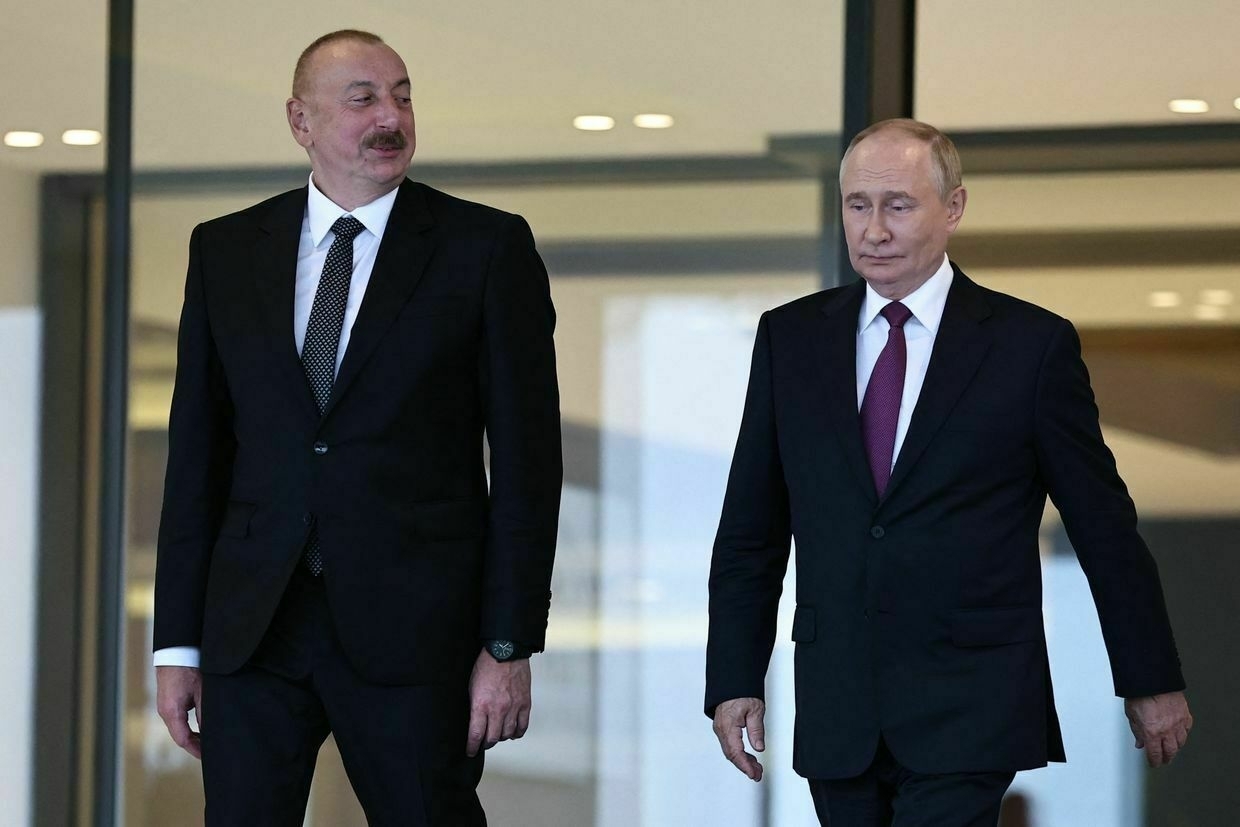-
China's foreign minister tells EU that Beijing cannot afford Russia to lose in Ukraine, media reports
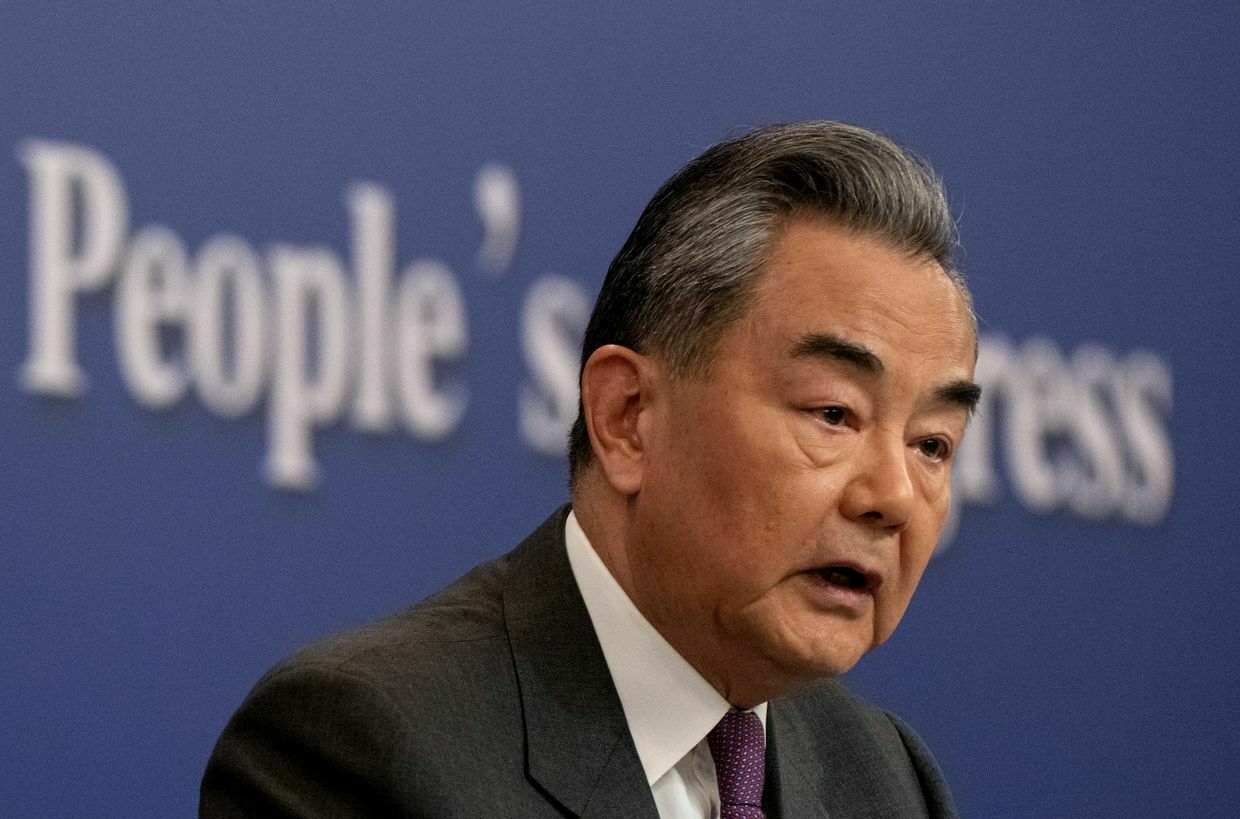
China’s Foreign Minister Wang Yi reportedly told the EU’s top diplomat Kaja Kallas on July 3 that the country cannot afford for Russia to lose the war in Ukraine amid fears the U.S. would shift focus towards Beijing, the South China Morning Post (SCMP) reported, citing sources familiar with the conversation.
As the war in Ukraine drags on, Wang’s reported comments suggest that Russia’s war in Ukraine may serve China’s strategic needs as focus is deviated away from Beijing’s mounting preparation to launch its own eventual invasion into Taiwan.
China has been a key ally to Russia during its full-scale war, helping Moscow evade Western sanctions and becoming the leading source of dual-use goods fueling the Russian defense industry.
U.S. President Donald Trump, who has not managed to broker a promised ceasefire between Moscow and Kyiv, has long viewed China as the United States' main adversary and is predominantly focused on relations between the two nations.
In June, Bloomberg reported Trump is pulling back from pressuring China over its support for Russia’s war effort, instead prioritizing other aspects of the U.S.-China relationship. The publication reported that the administration lowered the issue of Russia’s war against Ukraine on its list of foreign policy priorities and is focusing on bilateral issues with Beijing, though they noted Trump could still shift course.
The frankness of Wang’s reported admission was greeted with surprise by EU official, according to SCPM, amid China’s past public statements in favor of a peace deal.
Wang on July 3 again reportedly rejected Western accusations that it was providing funding and weaponry to support Moscow’s war effort in Ukraine. President Volodymyr Zelensky on May 29 said that China had stopped selling drones to Ukraine and Western countries while continuing to supply them to Russia.
Wang’s comments come amid waning support from Kyiv’s main military backer, the United States. On July 1, the U.S. Defense Department paused shipments of key weapons systems to Ukraine, including Patriot air defense missiles and precision-guided munitions.
As Russian-Chinese relations continue to grow, Russian President Vladimir Putin agreed to meet Chinese President Xi Jingping in September in China for the Shanghai Cooperation Organization summit.
Trump says he “didn’t make any progress” with Putin following phone callWhen asked if he had made any progress with Putin on the call, Trump responded: “No, I didn’t make any progress with him today at all.” The Kyiv IndependentDmytro Basmat
The Kyiv IndependentDmytro Basmat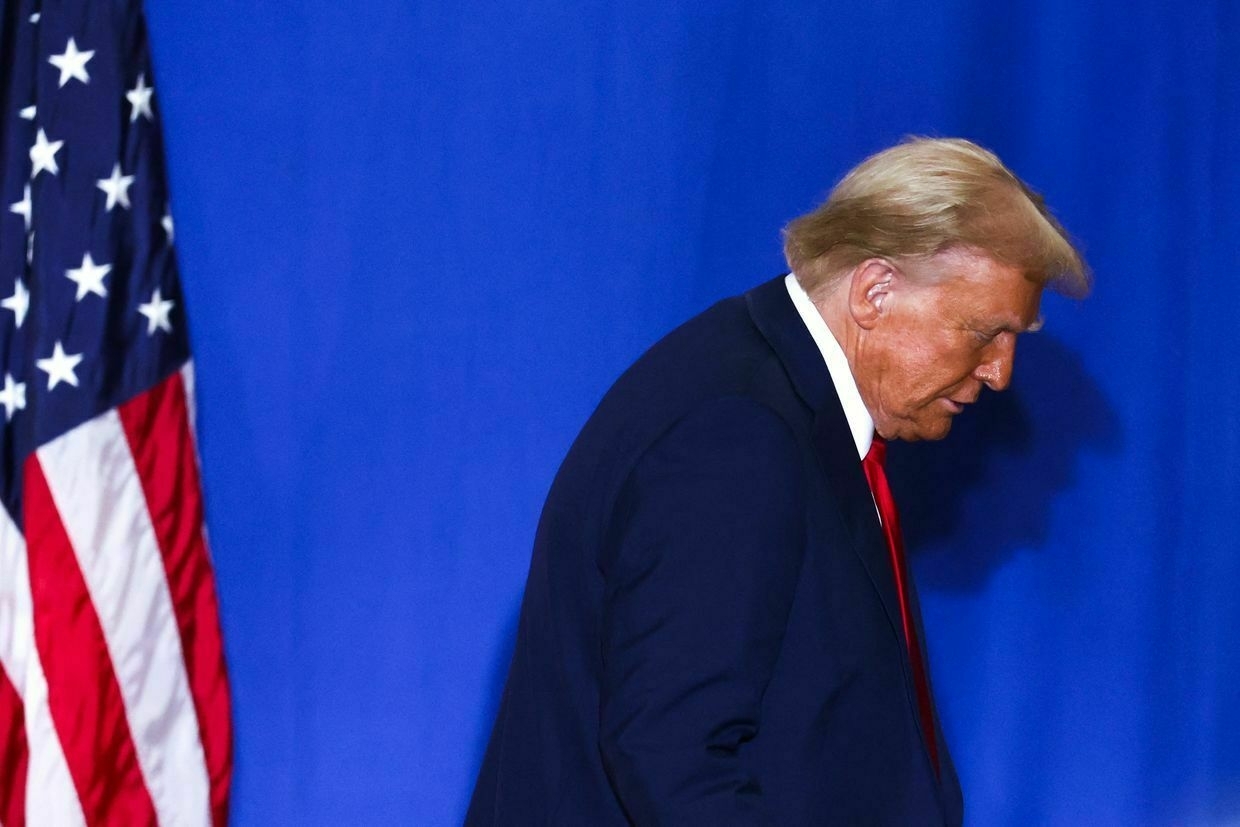
-
Trump says he "didn't make any progress" with Putin following phone call
<img src=“https://cdn.uploads.micro.blog/110176/2025/e4515f441d.jpg" alt=“Trump says he “didn’t make any progress” with Putin following phone call”>
U.S. President Donald Trump told reporters on July 3 that he “didn’t make any progress” on ending the war in Ukraine during his call with Russian President Vladimir Putin earlier in the day.
“We had a call. It was a pretty long call. We talked about a lot of things,” Trump said ahead of his flight to an Iowa event.
When asked if he had made any progress with Putin on the call, Trump responded: “No, I didn’t make any progress with him today at all."
The two leaders held an hour-long conversation early in the on July 3 focused on Russia’s war in Ukraine and the situation in the Middle East. The call marks the sixth conversation between the two men since Trump took office in January.
Kremlin aide Yury Ushakov told reporters earlier in the day that Putin said “Russia will continue to pursue its goals” in the war against Ukraine.
“Our president said that Russia will pursue its goals, specifically addressing the root causes that led to the current situation, and will not back down from these objectives,” Ushakov added.
The White House did not provide a read out of the meeting, and Trump did not provide further comment on the phone call.
Since taking office, Trump has attempted to broker a ceasefire between Ukraine and Russia to no avail. Despite two rounds of negotiations between Kyiv and Moscow, Putin has refused to implement a ceasefire, citing his maximalist demands.
While Trump has expressed frustration with Russia’s continued aggression, his administration has not imposed new sanctions nor taken steps to pressure the Kremlin directly.
Putin’s message came amid a surge of Russian drone and missile attacks across Ukraine that have killed and injured hundreds of civilians in recent weeks.
The strikes have destroyed numerous infrastructure as Russia intensifies its assault despite repeated calls from Kyiv, Washington, and European leaders for an unconditional ceasefire.
The phone call also came just a day after the U.S. Defense Department paused shipments of key weapons systems to Ukraine, including Patriot air defense missiles and precision-guided munitions. Ukraine’s Foreign Ministry has warned that the delay undermines defense efforts and risks emboldening Russia to escalate further.
President Volodymyr Zelensky, speaking from Denmark earlier in the day, said that achieving peace would require direct talks between national leaders.
The president described Trump and Putin as “completely different people” but emphasized that only Putin makes decisions in Russia.
“In Russia, only Putin makes decisions, which is why we need a meeting at the leadership level if we want to have peace,” Zelensky said.
Putin tells Trump Russia won’t back down from its war aims in UkraineThe hour-long conversation between the two presidents focused on Russia’s war in Ukraine and the situation in the Middle East, according to Kremlin aide Yury Ushakov.<img src=“https://cdn.uploads.micro.blog/110176/2025/6351a104b1.jpg" alt=“Trump says he “didn’t make any progress” with Putin following phone call” data-sanitized-class=“kg-bookmark-icon”>The Kyiv IndependentTim Zadorozhnyy<img src=“https://cdn.uploads.micro.blog/110176/2025/54880f3fc6.jpg" alt=“Trump says he “didn’t make any progress” with Putin following phone call”> -
Russia becomes first country to recognize Afghanistan's Taliban government
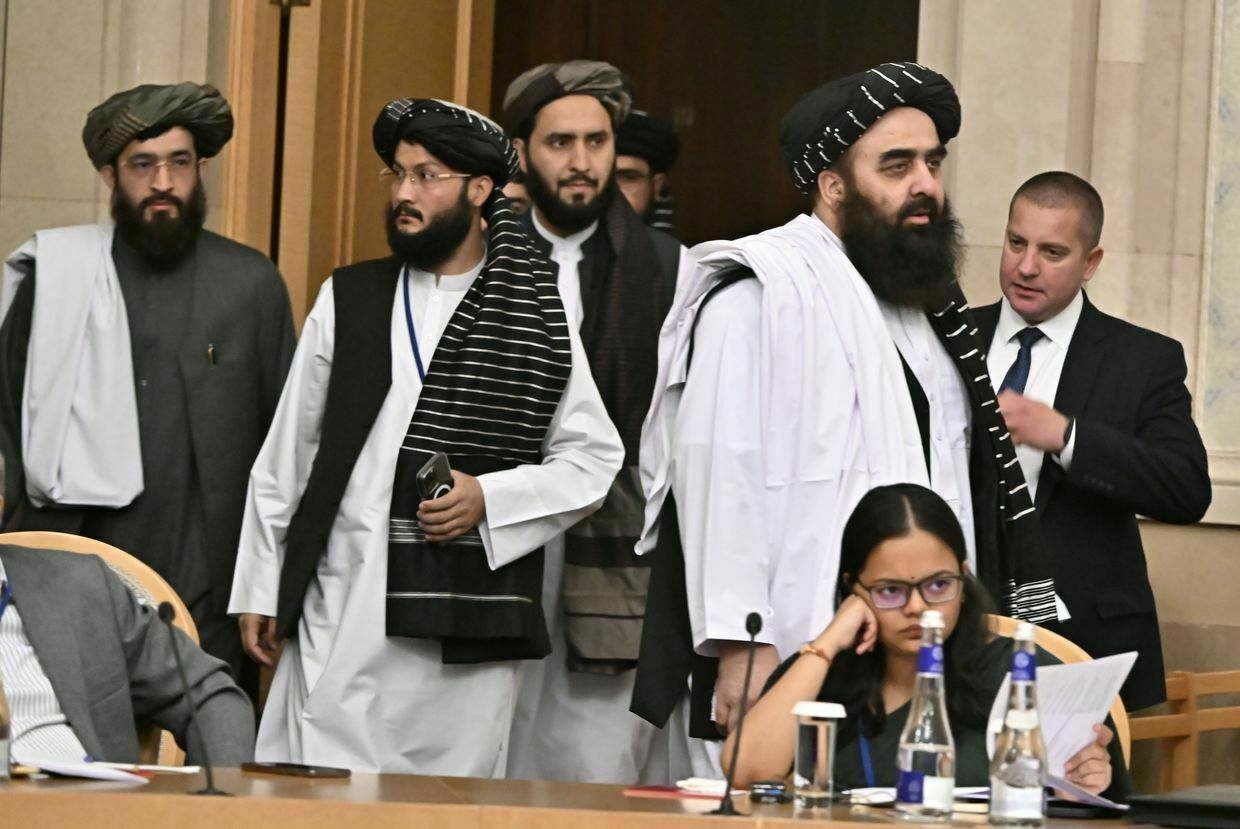
Russia became the first country to recognize the Taliban as the ruling government of Afghanistan on July 3, Russia’s Foreign Ministry announced.
“We believe that the act of official recognition of the government of the Islamic Emirate of Afghanistan will give impetus to the development of productive bilateral cooperation between our countries in various fields,” the Foreign Ministry said in a statement.
The Taliban, an Islamist militant group, seized control of Afghanistan in August 2021 following the withdrawal of U.S. and NATO forces, toppling the Western-backed government.
Despite its control over the country, the Taliban-led administration has not been formally recognized by any other state due to its failure to meet international commitments on human rights, governance, and counter-terrorism.
Russian state media outlet TASS reported that Russian President Vladimir Putin made the final decision based on advice from Foreign Minister Sergey Lavrov.
As relations with Western governments fell apart following Moscow’s full-scale invasion of Ukraine in February 2022, the Kremlin has increasingly looked to work closely with totalitarian regimes, including North Korea and Iran, to advance economic and military partnerships.
In recent years, Moscow has expanded engagement with the Taliban, deepening trade ties and investing in Afghan infrastructure. The Taliban also regularly participates in Russian economic and educational forums.
In recent months, Russia’s Supreme Court ruled to suspend the ban on dealings with the Taliban, and Russia’s State Duma passed legislation in December 2024 allowing the possibility of removing organizations from the list of banned terrorist groups.
Putin has previously referred to the Taliban as “allies,” while Foreign Minister Sergey Lavrov has called them “sane people."
The Taliban, however, continues to enforce strict Islamic law, banning women from education, restricting social interactions, and carrying out the public stoning of women to death.
Ukraine war latest: Putin tells Trump Russia won’t back down from its war aims in UkraineKey developments on July 3: * Putin tells Trump Russia won’t back down from its war aims in Ukraine * Deputy commander of Russian Navy killed in Ukrainian strike in Kursk, Russian official confirms * Ukraine signs major drone co-production deal with US Swift Beat, Zelensky announces * Russia targets Ukrainian conscription offices to disrupt mobilization, military spokesperson says after Poltava attack * ‘One of Russia’s most critical targets’ — Ukraine confirms strike on missile battery pl The Kyiv IndependentThe Kyiv Independent news desk
The Kyiv IndependentThe Kyiv Independent news desk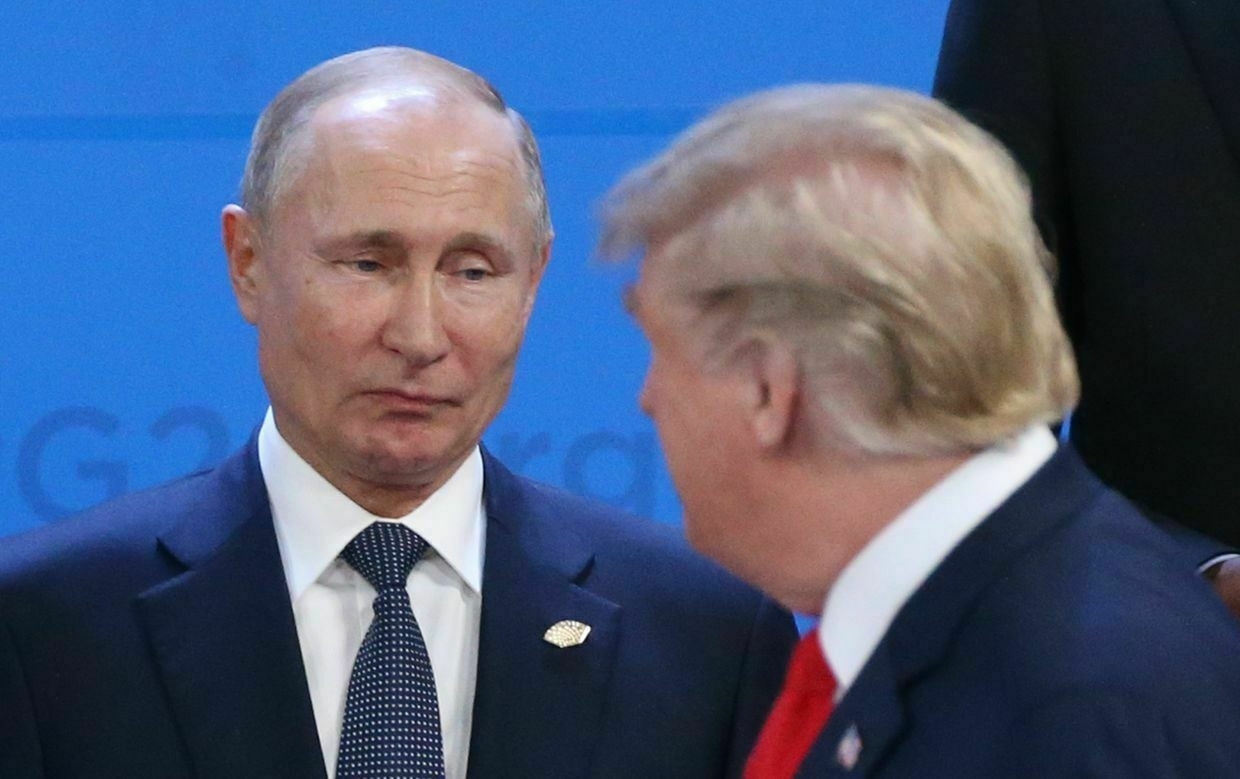
-
Ukraine war latest: Putin tells Trump Russia won't back down from its war aims in Ukraine
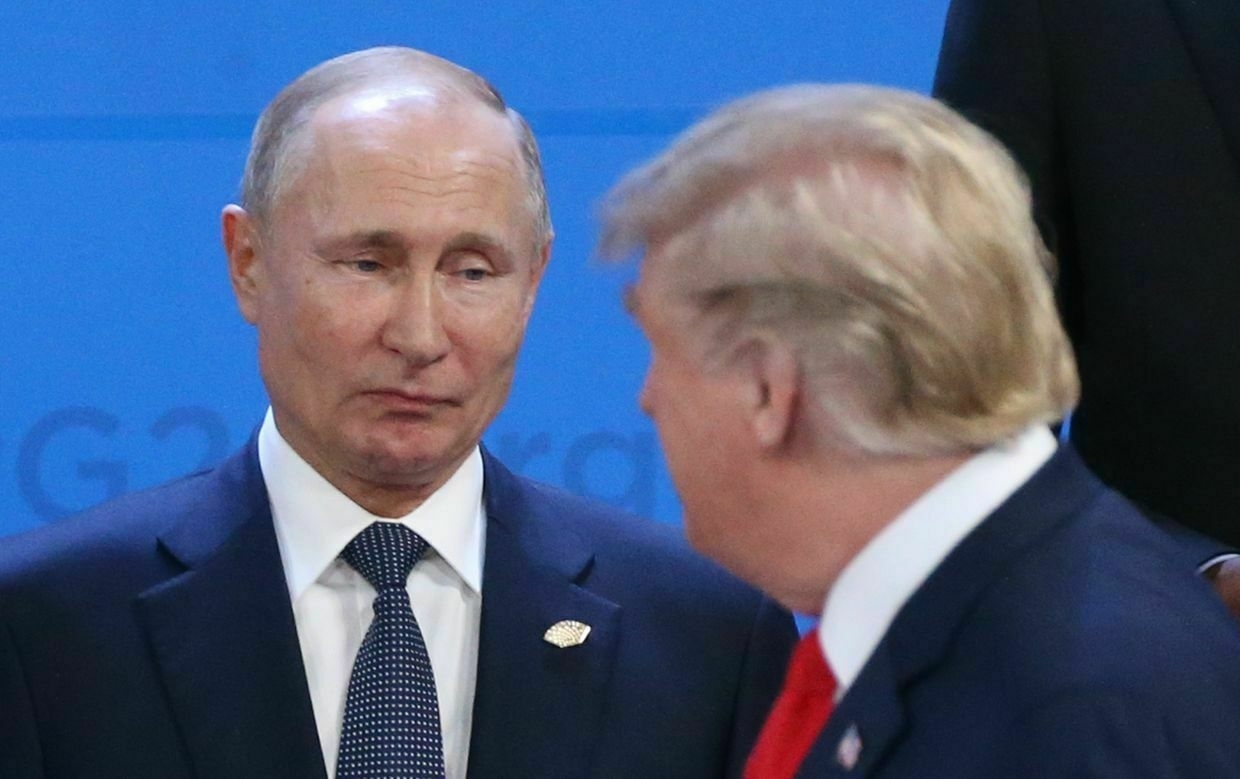
Key developments on July 3:
- Putin tells Trump Russia won’t back down from its war aims in Ukraine
- Deputy commander of Russian Navy killed in Ukrainian strike in Kursk, Russian official confirms
- Ukraine signs major drone co-production deal with US Swift Beat, Zelensky announces
- Russia targets Ukrainian conscription offices to disrupt mobilization, military spokesperson says after Poltava attack
- ‘One of Russia’s most critical targets’ — Ukraine confirms strike on missile battery plant in Lipetsk
During a phone call with U.S. President Donald Trump on July 3, Russian President Vladimir Putin said “Russia will continue to pursue its goals” in the war against Ukraine, Kremlin aide Yury Ushakov said.
The hour-long conversation between the two presidents focused on Russia’s war in Ukraine and the situation in the Middle East, according to Ushakov.
“Trump once again emphasized the need to end military hostilities as soon as possible. Vladimir Putin noted that Russia continues to seek a political negotiated solution to the conflict,” Ushakov said.
“Our president said that Russia will pursue its goals, specifically addressing the root causes that led to the current situation, and will not back down from these objectives."
The Kremlin aide added that the two leaders discussed cultural diplomacy, specifically the exchange of films promoting what Ushakov described as “traditional values close to Russia and the U.S. presidential administration."
Putin’s message came amid a surge of Russian drone and missile attacks across Ukraine that have killed and injured hundreds of civilians in recent weeks.
The strikes have destroyed numerous infrastructure as Russia intensifies its assault despite repeated calls from Kyiv, Washington, and European leaders for an unconditional ceasefire.
The phone call also came just a day after the U.S. Defense Department paused shipments of key weapons systems to Ukraine, including Patriot air defense missiles and precision-guided munitions. Ukraine’s Foreign Ministry has warned that the delay undermines defense efforts and risks emboldening Russia to escalate further.
President Volodymyr Zelensky, speaking from Denmark earlier in the day, said that achieving peace would require direct talks between national leaders.
The president described Trump and Putin as “completely different people” but emphasized that only Putin makes decisions in Russia.
“In Russia, only Putin makes decisions, which is why we need a meeting at the leadership level if we want to have peace,” Zelensky said.
According to Ushakov, the presidents did not discuss the possibility of a meeting, but “the idea is in the air,” and they agreed to continue communication.
Moscow and Kyiv have held two rounds of face-to-face talks in Istanbul this year, first on May 16 and again on June 2, following more than three years with no direct negotiations.
The meetings resulted in several prisoner exchanges, but no steps toward a ceasefire.
While Trump has expressed frustration with Russia’s continued aggression, his administration has not imposed new sanctions nor taken steps to pressure the Kremlin directly.
Ukraine scrambles to clarify extent of U.S. military aid pause and ‘whether everything will continue’When the U.S. Department of Defense (DOD) halted the transfer of critical air defense missiles and other weapons to Ukraine, Kyiv and its partners were caught off-guard and are now left scrambling for clarity on the scope and length of the Trump administration’s decision. The White House confirmed the halt after a July 1 report by Politico said shipments were paused due to concerns over the size of domestic stockpiles. The decision “was made to put America’s interests first following a DOD rev The Kyiv IndependentAndrea Januta
The Kyiv IndependentAndrea Januta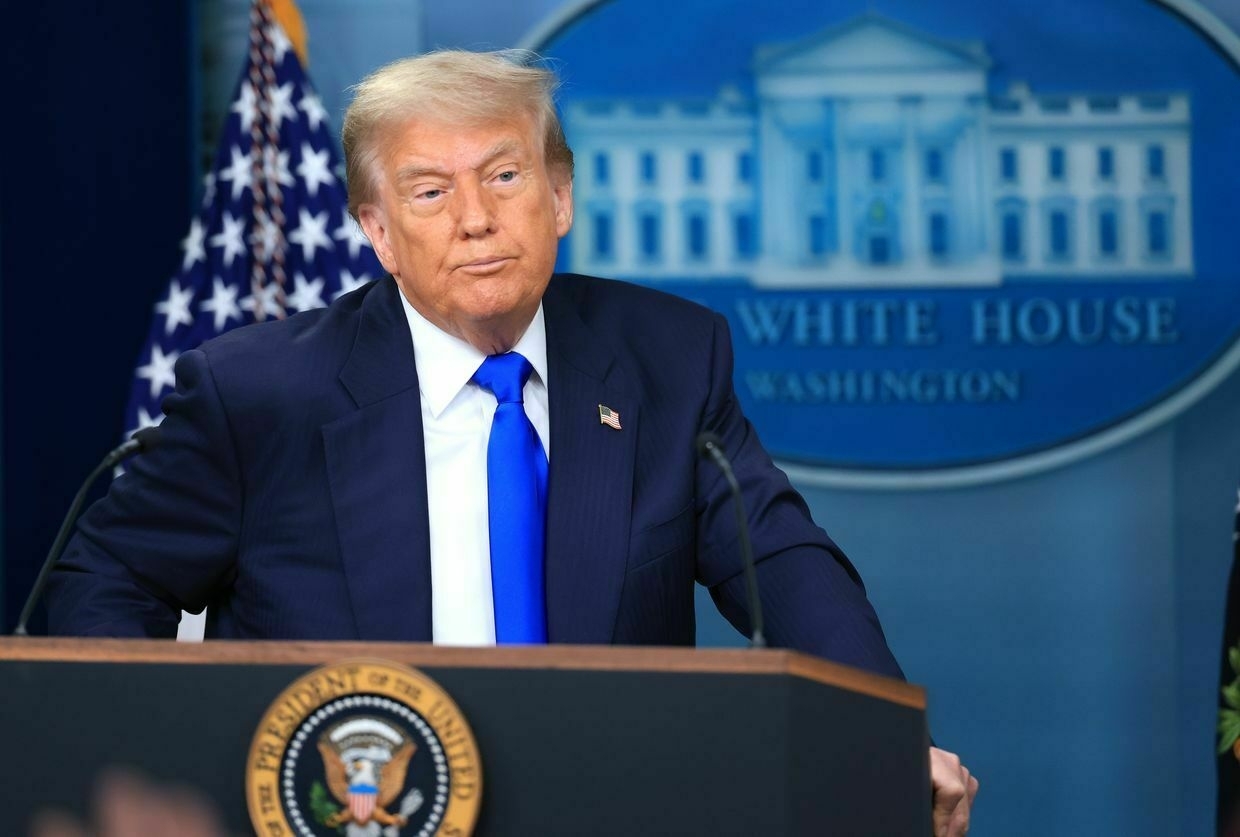
Deputy commander of Russian Navy killed in Ukrainian strike in Kursk, Russian official confirmsA deputy commander of Russia’s navy has been killed in a Ukrainian strike in Kursk Oblast, a Russian official confirmed on July 3.
Major General Mikhail Gudkov was killed alongside his deputy and several other Russian soldiers, Oleg Kozhemyako, governor of Russia’s Primorsky Krai, said in a post on social media.
According to Russian milbloggers, 22 people in total were killed as a result of a Ukrainian HIMARS strike in Russia’s Kursk Oblast bordering Ukraine. Kyiv has yet to comment on the attack.
Gudkov was appointed deputy commander of the Russian Navy in March 2025. Prior to that, he led the 155th Separate Marine Brigade, which was involved in combat operations against Ukraine.
Ukraine has accused the 155th Separate Marine Brigade of committing numerous war crimes. According to the country’s Air Assault Forces, members of the brigade are responsible for executing prisoners of war and humiliating captured Ukrainian soldiers.
Gudkov held the titles of Hero of Russia and Hero of Primorye, Russia’s far eastern region where he previously served, Kozhemyako said.
HIMARS, whose prowess became a popular motif of internet memes, was a game-changer for Ukraine when it first arrived in the summer of 2022.
Initially supplied with GMLRS rockets with a range of around 70 kilometers, they allowed Ukraine to target Russian forces on the other side of the front line far more accurately than they had previously.
In the fall of 2023, the U.S. began supplying Kyiv with an older model of ATACMS – fired from HIMARS launchers – with a range of around 165 kilometers, greatly increasing the range that Ukraine could strike within.
Russia’s high-ranking military officials have been killed on a regular basis throughout the full-scale invasion — a recent report from BBC Russia identified ten generals 10 generals and 524 lieutenant colonels and colonels.
Ukrainian forces launched a cross-border incursion into Russia’s Kursk Oblast in August 2024, making it the first large-scale invasion of Russian territory by foreign troops since World War II. The move was intended to disrupt a planned Russian offensive targeting Ukraine’s Sumy Oblast and to relieve pressure on the Donetsk front.
Since then, Ukraine claims it has inflicted 63,402 Russian troop casualties in the oblast, including 25,625 killed and 971 captured. Ukrainian forces also say they have destroyed or damaged over 5,664 pieces of Russian military equipment in the area.
Russia retook most of the lost territory during a renewed offensive in March 2025, supported by North Korean troops.
Former Russian proxy mayor reportedly killed in explosion in occupied LuhanskManolis Pilavov had been wanted in Ukraine since 2015 on charges including attempting to violently overthrow the constitutional order and violating Ukraine’s territorial integrity. The Kyiv IndependentTim Zadorozhnyy
The Kyiv IndependentTim Zadorozhnyy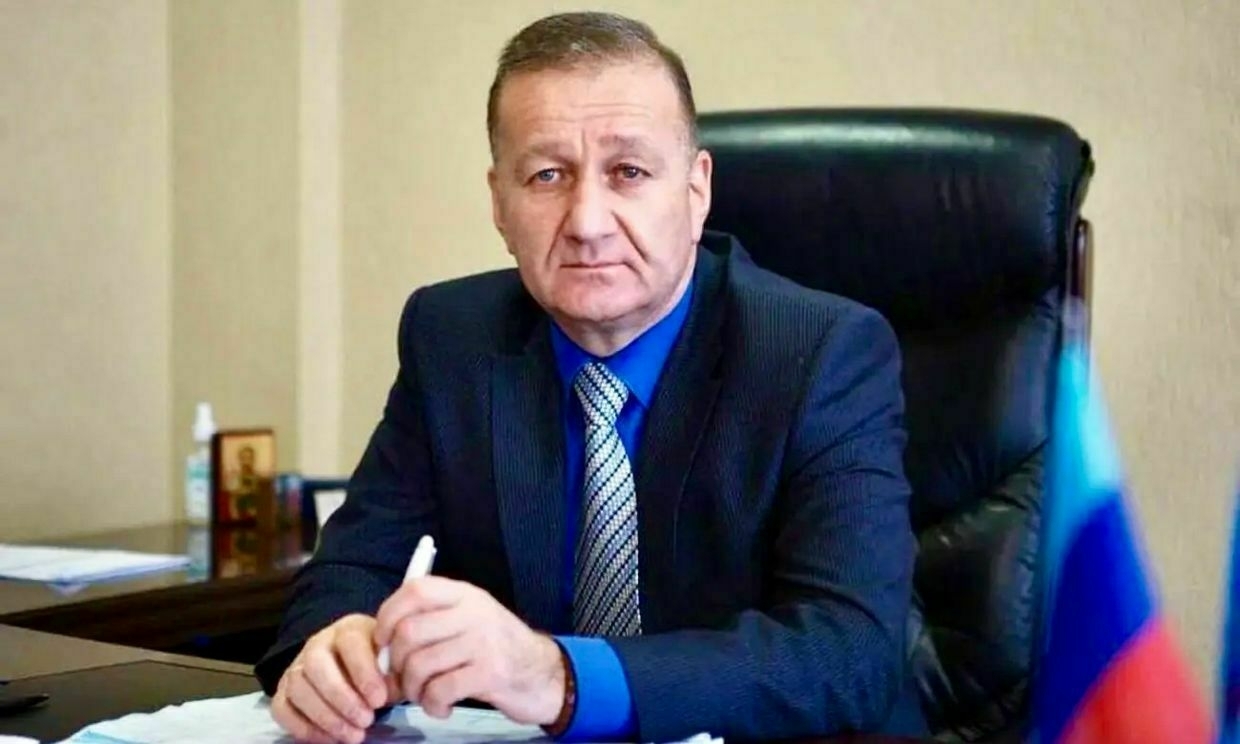
Ukraine signs major drone co-production deal with US Swift Beat, Zelensky announcesUkraine signed a major deal with U.S. company Swift Beat to co-produce hundreds of thousands of drones this year, President Volodymyr Zelensky announced on July 3 during his visit to Denmark.
The long-term strategic partnership agreement was signed by Ukraine’s Defense Minister Rustem Umerov and Eric Schmidt, the CEO of Swift Beat, in Denmark on the same day.
Under the deal, the company will produce various kinds of unmanned aerial vehicles for Ukraine, including those designed to intercept Russian drones and missiles, reconnaissance, attack, and other drones, Zelensky said in a statement published on the website of the President’s Office.
“The key priority is interceptor drones that have already proven effective in Ukraine,” Zelensky said. “We’ve tested models from several companies, and now we’re signing serious contracts."
Swift Beat will increase its production capacity, aiming to produce hundreds of thousands of drones for Ukraine this year, with plans to scale up production in 2026, according to Zelensky.
“Modern drones will be supplied to Ukraine as a priority, on special terms and at cost,” Zelensky said.
The announcement comes just a day after the U.S. Defense Department (DOD) halted shipments of some air defense missiles and other weapons previously promised to Kyiv. Ukraine has been trying to negotiate buying U.S. weapons for months after U.S. President Donald Trump, who has opposed military aid to Kyiv, took office in January.
Swift Beat has a significant presence in Ukraine, according to Zelensky’s office. It specializes in autonomous AI-powered drones and cooperates with Ukrainian engineers and the military, conducting drone testing on Ukrainian territory, the statement reads.
Zelensky arrived in Denmark on July 3 to mark the country’s assumption of the rotating presidency of the Council of the European Union.
Zelensky also said that during his visit, he plans to raise the issue of political blockages hindering Ukraine’s path to joining the European Union.
“We’re ready to open three accession clusters and want to start with one now, in the very near future. But political blockages remain, purely political,” he said.
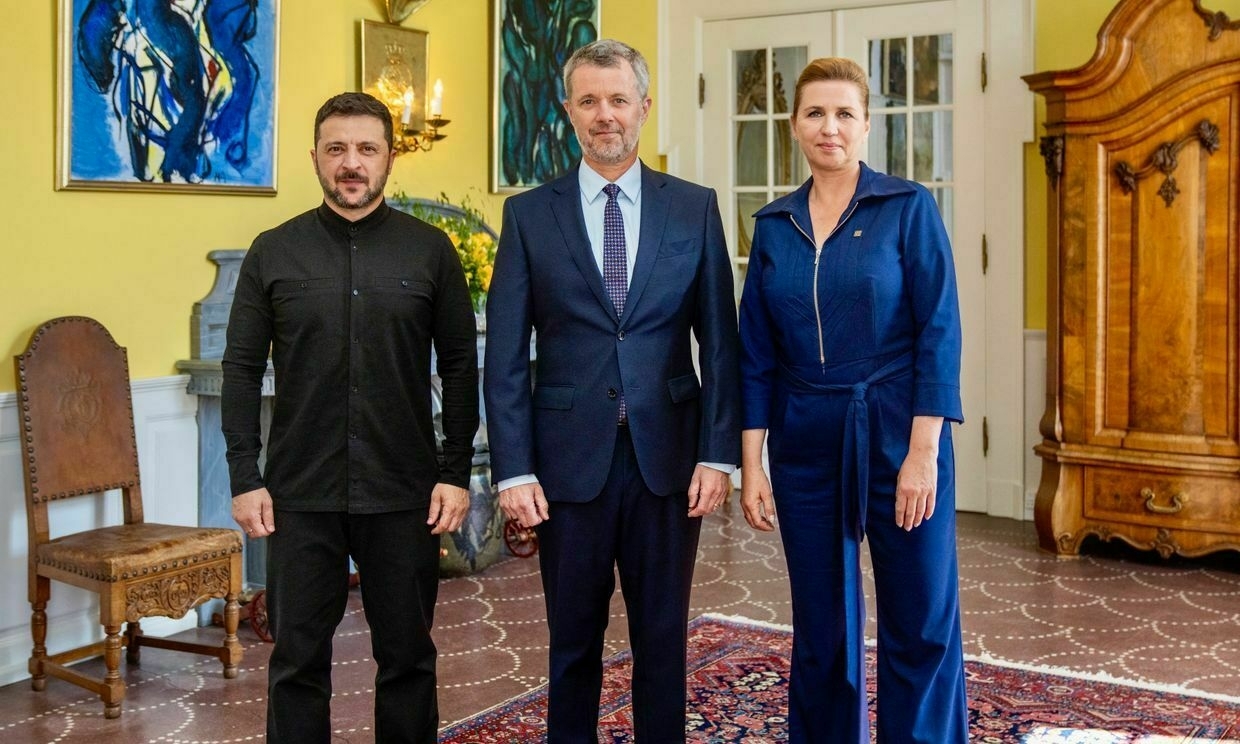
Denmark’s King Frederik (C), President Volodymyr Zelensky (L), and Denmark’s Prime Minister Mette Frederiksen (R) in Aarhus, Denmark, on July 3, 2025. (Ida Marie Odgaard / Ritzau Scanpix / AFP) While EU member states agreed to take into account the European Commission’s assessment that Ukraine is ready to open the first, Fundamentals cluster, the process remains stalled due to Hungary’s refusal to grant unanimous support.
Ukraine applied for EU membership in 2022 and was granted candidate status shortly thereafter, but full negotiations require the approval of all 27 EU member states.
Denmark has been a key backer of Ukraine since the start of Russia’s full-scale invasion in 2022. In February 2024, Copenhagen signed a 10-year bilateral security agreement with Kyiv, pledging long-term defense cooperation until Ukraine secures NATO membership.
Zelensky said he expects Denmark to expand its financial support for Ukraine’s drone and missile production initiatives.
“What we’ve just signed requires significant funding. I’m counting on our relationship with Denmark,” the president said.
The Ukrainian president will also participate in official events commemorating Denmark’s presidency of the Council. According to Danish broadcaster DR, the events will be attended by Denmark’s royal family, government officials, and EU leaders.
Ukrainian Air Force officer acting as ‘FSB mole’ arrested, SBU saysThe alleged spy, arrested during a special operation in Lviv Oblast, was reportedly recruited through his ex-wife, a former military officer now cooperating with Russian forces in occupied Melitopol. The Kyiv IndependentAnna Fratsyvir
The Kyiv IndependentAnna Fratsyvir
Russia targets Ukrainian conscription offices to disrupt mobilization, military spokesperson says after Poltava attackA Russian strike on Poltava, central Ukraine, killed two people and injured 47 others on the morning of July 3, local and military officials said.
The attack, which occurred around 9 a.m. local time, sparked fires and damaged civilian infrastructure, according to Governor Volodymyr Kohut and Ukraine’s Ground Forces.
The State Emergency Service reported that 84 emergency workers, including psychologists, pyrotechnicians, and medics, were deployed at the site of the attacks. Firefighters extinguished the fires, cleared the rubble, and rescued 10 people from the damaged buildings.
According to the statement of Ukraine’s Ground Forces, one of the strikes caused a fire at the Poltava conscription office, a local military facility. A separate strike near the Poltava conscription office set fire to a private residential property, authorities said.
Speaking on national television, Ukraine’s Ground Forces spokesperson Vitalii Sarantsev said that Russia was deliberately targeting conscription offices to disrupt Ukraine’s mobilization efforts.
“We will continue to strengthen our army, train our troops, and involve more people in defense to deliver a strong response to the enemy,” Sarantsev said.
This wasn’t the first time Russia has been linked to such attacks. Back in February, Moscow recruited the man who carried out a deadly bombing at a military enlistment office in the city of Rivne in northwestern Ukraine.
‘Major casualties among civilians’ — US freeze on air defense missiles is terrible news for UkraineThe halting of deliveries of air defense missiles from the U.S. will lead to“major casualties among civilians,” a deputy commander in Ukraine’s air defense told the Kyiv Independent. Politico reported on July 1 that the U.S. Defense Department (DOD) had halted shipments of some weapons previouslyThe Kyiv IndependentKollen Post
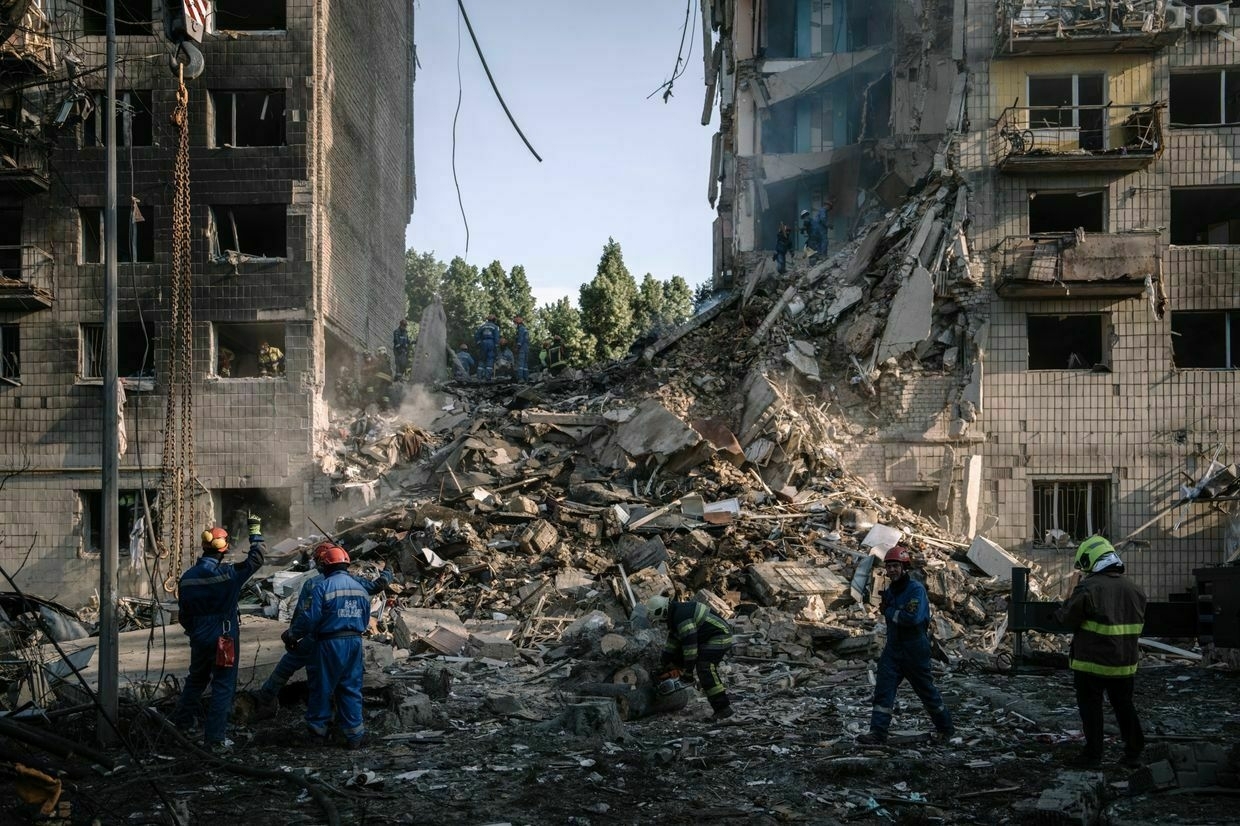
‘One of Russia’s most critical targets’ — Ukraine confirms strike on missile battery plant in LipetskUkraine confirmed strikes on the Energia factory in Russia’s Lipetsk Oblast overnight on July 3, a facility that produces components for missiles and drones, including batteries for the Iskander missile system and cruise missiles.
The attack on the Energia plant in the city of Yelets was first reported by Lipetsk Governor Igor Artamonov. Artamonov said a fire broke out near the facility after a drone strike, and residents reported multiple explosions.
Employees in nearby workshops were evacuated. No casualties have been reported. Residents of Yelets were reporting multiple explosions, according to the Russian Telegram news channel Astra.
Andrii Kovalenko, head of the Counter-Disinformation Center at Ukraine’s National Security and Defense Council, confirmed the strike, calling Energia “one of the most critical targets for Russia.” According to Kovalenko, the facility manufactures batteries for missile guidance and glider modules, including for the Iskander system and cruise missiles.
Ukraine’s General Staff later on July 3 released an official statement confirming the strike, saying the attack was carried out by the Ukrainian Armed Forces' Unmanned Systems Forces in coordination with other defense elements.
The General Staff also stated that explosions were recorded on the factory grounds and that production had been halted. “The Defense Forces continue to take measures to undermine the military and economic potential of the Russian (troops) and force Russia to stop its armed aggression against Ukraine,” the statement said.
The results of the fire damage are still being clarified, according to the military.
The Energia plant produces parts for ballistic and cruise missiles, as well as batteries for drones and glide bombs. The factory was previously targeted multiple times this past May.
The city of Yelets lies some 250 kilometers (150 miles) north of the Russia-Ukraine border.
Artamonov also claimed that drones caused damage to other areas in the region. Wreckage from an intercepted drone allegedly crashed onto a residential building, killing a woman and injuring two other people.
Explosions were also reported overnight in the Russian-occupied city of Khartsyzk in Ukraine’s Donetsk Oblast, with Russian Telegram channels citing eyewitnesses who claim a missile may have struck a Russian ammunition depot.
Several rounds of secondary detonations followed the initial blast, according to the reports.
The Kyiv Independent could not verify these claims.
Russia’s Defense Ministry claimed that its air defenses shot down a total of 69 Ukrainian drones overnight. The ministry said 27 drones were intercepted over Belgorod Oblast, 22 over Voronezh Oblast, 10 over Lipetsk Oblast, eight over Kursk Oblast, and two over Russian-occupied Crimea.
Ukraine regularly strikes military targets deep within Russian territory in an effort to diminish Moscow’s fighting power.
Note from the author:
Ukraine War Latest is put together by the Kyiv Independent news desk team, who keep you informed 24 hours a day, seven days a week. If you value our work and want to ensure we have the resources to continue, join the Kyiv Independent community.
-
Air defense is needed immediately: Ukraine calls on the US to act, while Russia intensifies terror
-
‘Not many events like this left’ — A Ukrainian literary festival in a city falsely claimed by Russia

When Russia illegally declared ownership in 2022 over all of Ukraine’s Zaporizhzhia Oblast – despite never fully capturing or controlling much of it — it only strengthened the case for holding a literary festival there, says Svyatoslav Pomerantsev, president of the international literary corporation Meridian Czernowitz.
Hosting a cultural event in the region, despite the risks, was a way to push back against Russia’s territorial claims by affirming Ukraine’s presence and identity.
“In the eyes of the Russians, we are holding a festival of Ukrainian literature on their territories,” he explained with a laugh.
Zaporizhzhia lies in southeastern Ukraine, one of four partially occupied regions Russia has claimed as its own following sham referenda in late 2022 — a move unrecognized internationally. Russia has continued to demand ownership over these territories and Crimea, which it illegally annexed in 2014, as part of any peace negotiations.
Meridian Czernowitz has hosted literary festivals across Ukraine since 2010, and on June 28-29, it hosted its third annual event held in the oblast’s regional capital of Zaporizhzhia.
There, train lines that were once packed with weekend travelers before the full-scale invasion now roll into the Ukrainian city with nearly empty cars. Russian glide bombs have made life in the industrial hub increasingly dangerous over the past year. The city’s pre-invasion population of 710,000 has dropped as refugees flee westward for safer areas, and the city has seen some of the war’s deadliest aerial strikes for civilians. The front line, roughly 30 kilometers (19 miles) away, inches closer.
Yet in a downtown basement lit by neon lightning bolts, some of Ukraine’s most renowned writers arrived to share their work and meet local residents in a two-day festival to a standing-room-only audience.
“They bomb us every day, but still we have large literary festivals. It lifts people’s spirits.”
More than 150 attendees listened attentively to works about grief, war crimes, love, and the beauty of nature, cheering the authors with standing ovations and waiting in line while clutching stacks of books for them to sign.
“They bomb us every day, but still we have large literary festivals. It lifts people's spirits,” said Pomerantsev.

Attendees of the Meridian Czernowitz literary festival get autographs from Yuliia Paievska, callsign “Taira,” Ukrainian medic and writer, in Zaporizhzhia, Ukraine, on June 28–29, 2025. (Danylo Martynov / Meridian Czernowitz / Facebook) 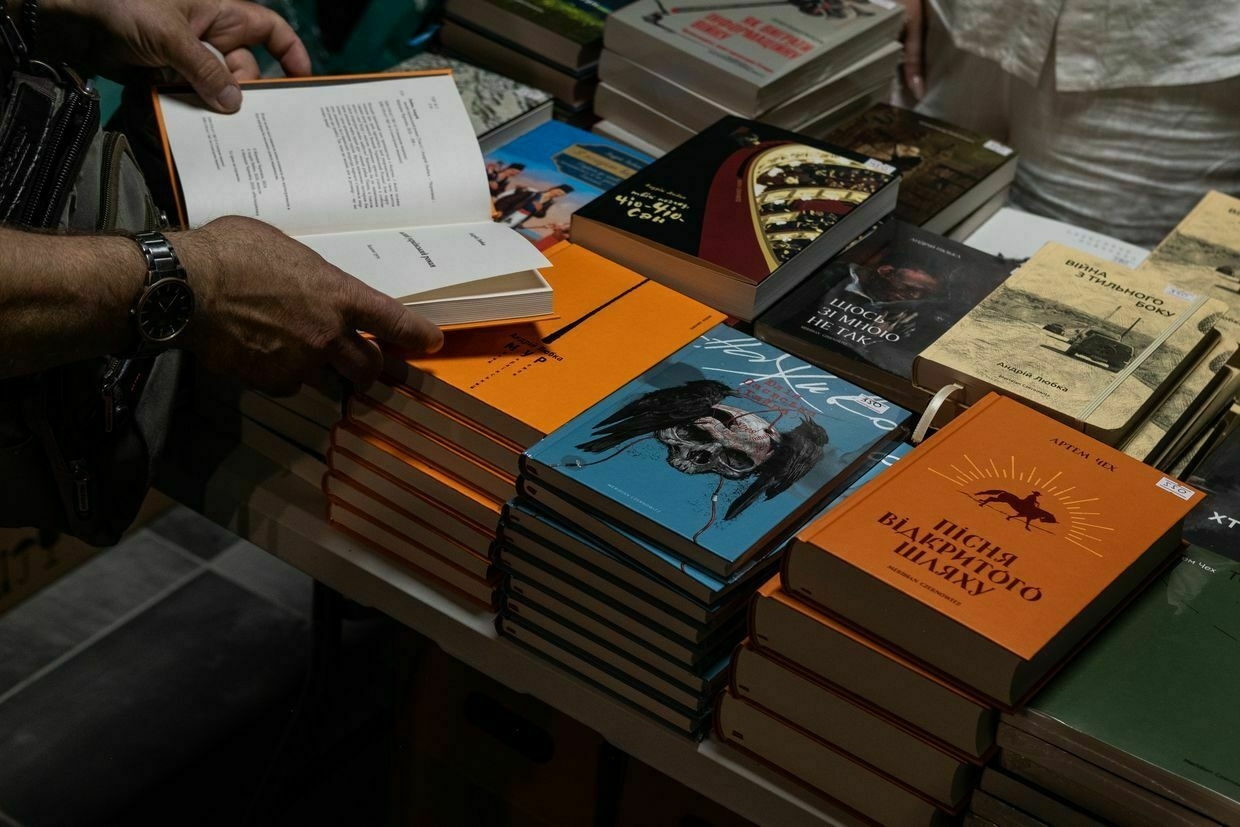
An attendee browses books by Ukrainian authors and poets during the Meridian Czernowitz literary festival in Zaporizhzhia, Ukraine, on June 29, 2025. (Chris Jones / The Kyiv Independent) Artem Kurikhin, a Zaporizhzhian native who teaches Ukrainian language and literature, saw billboards advertising the weekend and came to hear some of his favorite authors — including writer Yuri Andrukhovych — speak.
“There are not very many events like this still in Zaporizhzhia. You have to cling to every opportunity,” Kurikhin said. “The writers performing today are people who talk about Ukrainian culture and literature in a way that’s captivating.”
The organization purchased large billboards throughout the city ahead of the event, but attracting attendees was only their secondary purpose, Pomerantsev explained. More importantly, he wanted residents to look up at the posters and have reasons for optimism in their city.
“This is not poetry for the sake of poetry. It addresses issues with the local mood. Not everything is good, but at least we give people some piece of joy, faith,” Pomerantsev said.
A writer for life, a soldier temporarilyUkraine’s literary traditions are deeply woven into Ukraine’s national identity. Writers have historically been prominent public figures, holding political and activist roles. Famous Ukrainian writers like Taras Shevchenko, Ivan Franko, and Lesia Ukrainka are featured on the country’s banknotes and are credited with shaping Ukraine’s identity, embodying its spirit, and championing its independence.
Today, the war is shaping a modern generation of literary stars, as their latest works reflect and explore the experiences and emotions of a country under attack.
The festival emphasized poetry but featured a range of literary styles, from fiction to nonfiction. Yaryna Chonohuz, a poet and drone pilot in the Ukrainian Marine Corps, presented works from her new poetry collection “Night Saffron,” while Andriy Lyubka shared excerpts from his essay collection “War from the Rear,” which tackles his experiences when the writer suddenly became a front-line volunteer.
After seeing cruelty, blood, war, pain, everything, everything in this war (in Ukraine), I realized that there was little of this in my text.”
Audience members shook rain from a summer downpour off their umbrellas as they entered the underground space. Many wore traditional embroidered vyshyvankas, and the majority of them were women – a reminder that much of Ukraine's fighting-age male population is currently in the military.
When Ukraine's full-scale invasion broke out, author Artem Chekh was working on a historical fiction work about a Ukrainian serf who finds himself fighting in the American Civil War. Having served in Ukraine’s Armed Forces in 2015-2016, Chekh sent an incomplete draft to his editor in case he didn’t survive and went back to battle.

Author Artem Chekh during the Meridian Czernowitz literary festival in Zaporizhzhia, Ukraine, on June 28–29, 2025. (Danylo Martynov / Meridian Czernowitz / Facebook) 
Attendees of the Meridian Czernowitz literary festival in Zaporizhzhia, Ukraine, on June 28–29, 2025. (Danylo Martynov / Meridian Czernowitz / Facebook) When he returned to complete what would become his novel “Song of the Open Road,” he found himself rewriting sections to reflect how fear and trauma can permeate an entire continent beyond the front lines.
“After seeing cruelty, blood, war, pain, everything, everything in this war (in Ukraine), I realized that there was little of this in my text,” he told the Kyiv Independent.
At the event, he read from his latest book, “Dress Up Game,” released this year, which explores psychological transformations that take place throughout the chaos of war.
Chekh, who fought at the front lines, including in Bakhmut, one of the bloodiest battles of the war, now serves in a communications unit in Kyiv, but he identifies first and foremost as a writer.
“Writer is my vocation for life,” he explained. “The role of soldier is temporary. I hope it ends soon. I don’t want to hold a weapon in my hands.”
In the future, he hopes foreigners will show sustained interest in Ukrainian works beyond violent themes.
“I do not want our literature to be militarized and received only through the prism of war,” he said. “I want the world to learn about other sides of Ukraine and its literature. There are so many — interesting, original, especially the poetry.”
Ihor, a Zaporizhzhia native who fought in Zaporizhzhia’s 110th Territorial Defense Brigade under the callsign “Vikin,” attended both days of the festival.
“Almost every day, KABs (glide-bombs) or Shaheds arrive, but we try to live a full life,” he said.
“We have a great desire to live in a normal and healthy country. And culture and language determine the core of a nation.”
Note from the author:
Hi, I'm Andrea Januta, thank you for reading this article. Telling stories from regions like Zaporizhzhia is meaningful but difficult work. To fund our reporting, we rely on our community of members from around the world, most of whom give just $5 a month. If you liked this article, consider joining our community today.
10 authors shaping contemporary Ukrainian literatureThe Kyiv Independent put together a list of 10 celebrated Ukrainian writers, some of whose works are available in English translation.The Kyiv IndependentKate Tsurkan

-
Russian propaganda media Sputnik shuts down operations in Azerbaijan amid tensions

Russian state-funded propaganda media outlet Sputnik will cease operations in Azerbaijan, Russia Today media group CEO Dmitry Kiselyov said on July 3, according to the Russian state news agency RIA Novosti.
“We regret to say that, as of today, the conditions for Sputnik Azerbaijan to continue its activities in this country are not in place,” Kiselyov said.
The move comes amid a major deterioration in Russian-Azerbaijani relations.
Kiselyov’s comments followed the detention of several Sputnik Azerbaijan employees by Azerbaijani police on June 30. Authorities said two of the detainees were operatives of Russia’s Federal Security Service (FSB), prompting a formal protest from Moscow.
Kiselyov called the charges “far-fetched,” saying the staff had worked to “develop cooperation between Azerbaijan and Russia.” He added that legal action would be taken to defend them.
Sputnik, a key pillar of the Kremlin’s global propaganda network, has long been accused by Western governments and media watchdogs of spreading disinformation and pro-Russian narratives.
These developments follow a deadly June 27 operation in Russia’s Yekaterinburg, where Russian security forces killed two Azerbaijani nationals and injured several others in a raid linked to a 2001 murder case.
On June 28, Azerbaijan’s Foreign Ministry issued a rare public rebuke, calling the operation “ethnically motivated” and part of a “systematic pattern” of unlawful treatment of Azerbaijani nationals in Russia.
The diplomatic rupture deepened further after Azerbaijani authorities arrested eight Russian citizens the next day, presenting them in court handcuffed and visibly injured. They were accused of participating in organized crime, cyberattacks, and drug smuggling from Iran.
The closure of Sputnik’s bureau marks a new low in relations between the two former Soviet states, which have seen escalating tensions despite longstanding ties.
Arrests, raids, beaten and bloodied suspects — how Russia-Azerbaijan relations have unravelledDeaths in custody, media offices raided, and beaten and bloodied suspects paraded in court — relations between Russia and Azerbaijan, once considered close, have sharply deteriorated in recent days amid a series of high-profile incidents. The latest tensions erupted over the weekend when Russian law enforcement officers detained over 50 AzerbaijaniThe Kyiv IndependentTim Zadorozhnyy
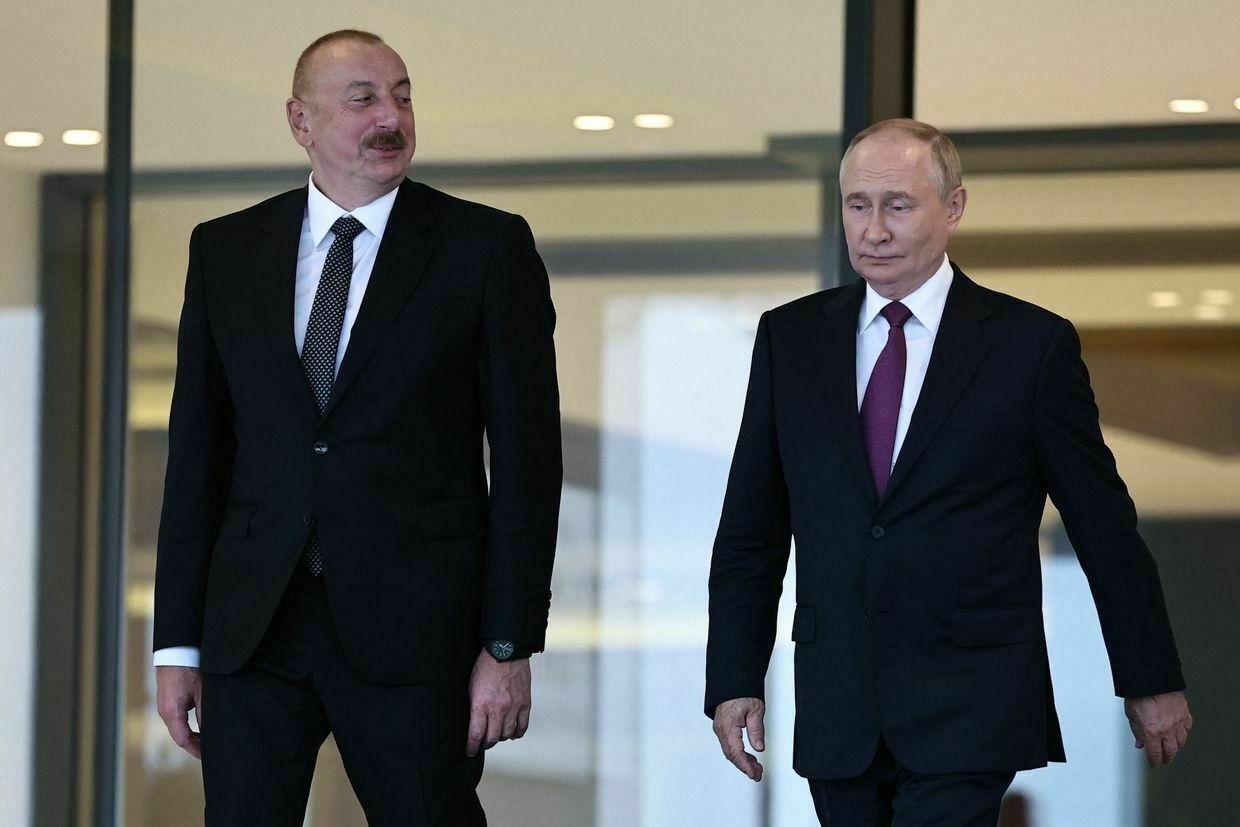
-
Kyiv under attack as Russia launches waves of drones on Ukraine
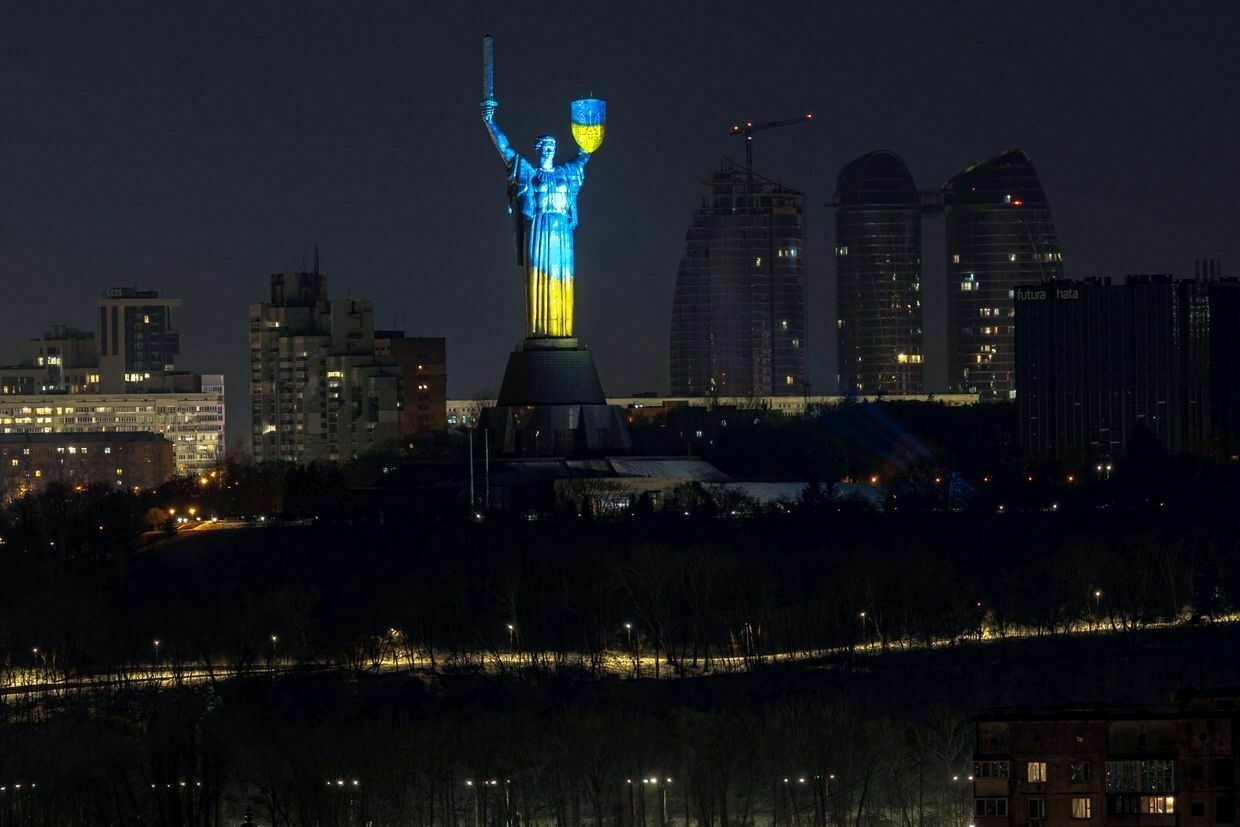
Editor’s note: This is a developing story and is being updated.
Explosions were heard in Kyiv on July 3 as Russia launched a wave of drones across Ukraine.
Tymur Tkachenko, head of the Kyiv City Military Administration, confirmed that one drone was shot down over the capital. Debris from the drone landed in an open area of the city’s Solomianskyi district. Preliminary reports indicate no casualties.
“Stay in shelters,” Tkachenko wrote on Telegram, urging residents to remain cautious.
The Kyiv Independent journalists on the ground reported hearing explosions in the capital. Ukraine’s Air Force said drones were active in eastern Kyiv Oblast at the time of the attack.
The drone assault comes hours after a phone call between Russian President Vladimir Putin and U.S. President Donald Trump, during which the Kremlin said Putin reaffirmed that “Russia will continue to pursue its goals” in Ukraine despite calls for a ceasefire from the West.
Kyiv and other major Ukrainian cities have faced intensified drone and missile strikes in recent weeks, with Russia deploying Iranian-designed Shahed drones in record numbers.
Ukrainian officials have warned that continued attacks are aimed at wearing down air defense systems and terrorizing civilians.
Ukraine scrambles to clarify extent of U.S. military aid pause and ‘whether everything will continue’When the U.S. Department of Defense (DOD) halted the transfer of critical air defense missiles and other weapons to Ukraine, Kyiv and its partners were caught off-guard and are now left scrambling for clarity on the scope and length of the Trump administration’s decision. The White House confirmed the halt after a July 1 report by Politico said shipments were paused due to concerns over the size of domestic stockpiles. The decision “was made to put America’s interests first following a DOD rev The Kyiv IndependentAndrea Januta
The Kyiv IndependentAndrea Januta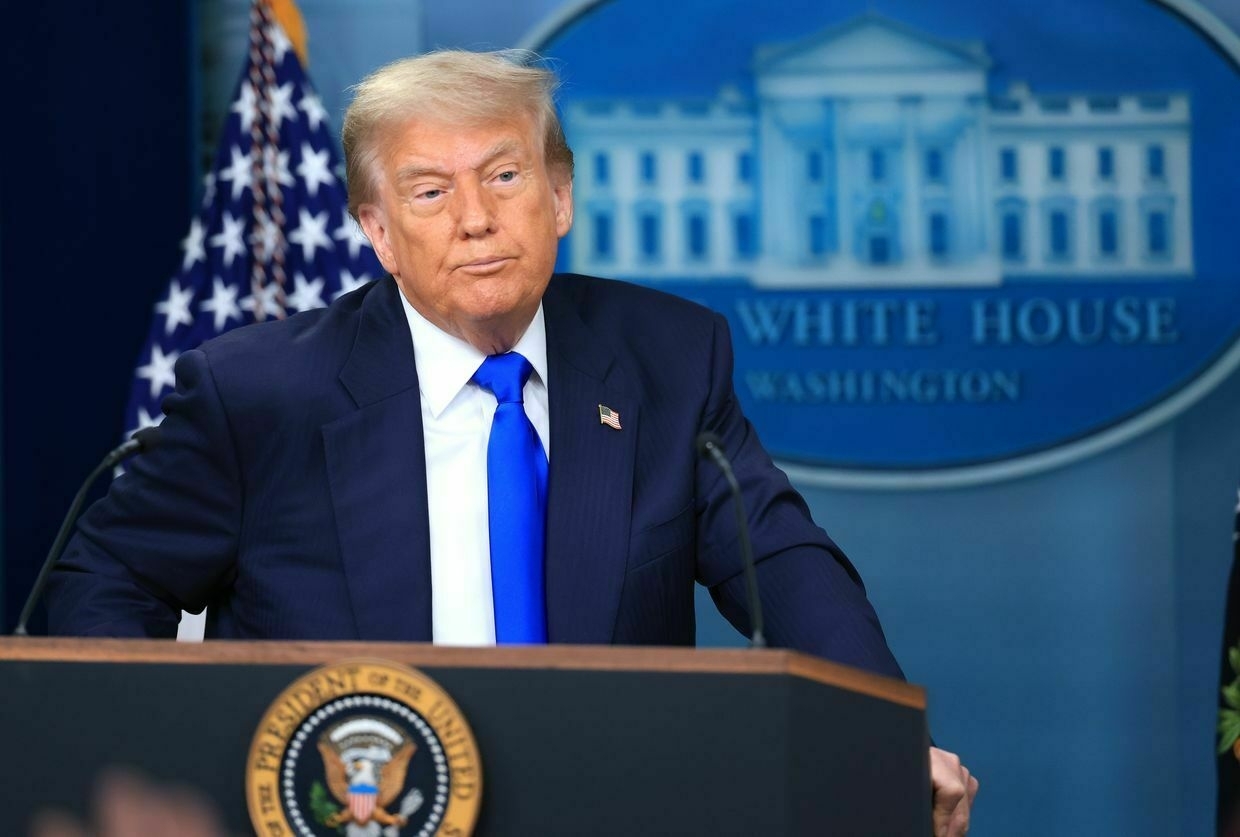
-
Russia on the brink: how a lack of equipment is forcing the infantry Into battle
-
In landmark ruling, same-sex couple recognized as family by Ukrainian court

Kyiv’s Desniansky District Court has formally recognized a same-sex couple as a family, marking the first legal precedent of its kind in Ukraine, human rights organization Insight LGBTQ announced on July 3.
Ukraine does not currently recognize same-sex marriages or partnerships, and this court ruling may serve as a critical legal milestone in expanding rights for LGBTQ families.
The case involves Zoryan Kis, first secretary of Ukraine’s Embassy in Israel, and his partner Tymur Levchuk, who have lived together since 2013 and were married in the U.S. in 2021.
The court ruled on June 10 that their relationship constitutes a de facto marriage, establishing them as a family under Ukrainian law.
The ruling comes after Ukraine’s Foreign Ministry refused to acknowledge Levchuk as Kis' family member, denying him spousal rights to accompany Kis on his diplomatic posting to Israel. In response, the couple filed a legal complaint in September 2024.
In its decision, the court cited both the Ukrainian Constitution and precedents from the European Court of Human Rights (ECHR), which requires states to ensure legal recognition and protection for same-sex families.
Evidence considered by the court included shared finances, property, witness testimony, joint travel records, photographs, correspondence, and other documents establishing a long-term domestic partnership.
"A very big and important step toward marriage equality in Ukraine, and a small victory in our struggle for 'simple family happiness' for Ukrainian diplomats," Kis wrote on Facebook.
"Now we have a court ruling that confirms the feelings Tymur Levchuk and I have for each other," he added, thanking the judge who heard the case.
Public support for LGBTQ rights in Ukraine has grown in recent years, particularly since the start of Russia's full-scale invasion. According to a 2024 poll by the Kyiv International Institute of Sociology, 70% of Ukrainians believe LGBTQ citizens should have equal rights.
Despite shifting public opinion, legislative progress remains slow. A draft law recognizing civil partnerships, introduced by Holos party lawmaker Inna Sovsun in March 2023, has not advanced in parliament due to a lack of approval from the Legal Policy Committee.
The proposed bill would legalize civil partnerships for both same-sex and heterosexual couples, offering them inheritance, medical, and property rights, but not the full status of marriage.
As Trump ‘loses interest’ in Ukraine, Kyiv scrambles to clarify extent of U.S. military aid pauseWhen the U.S. Department of Defense (DOD) halted the transfer of critical air defense missiles and other weapons to Ukraine, Kyiv and its partners were caught off-guard and are now left scrambling for clarity on the scope and length of the Trump administration’s decision. The White House confirmed the halt after a July 1 report by Politico said shipments were paused due to concerns over the size of domestic stockpiles. The decision “was made to put America’s interests first following a DOD rev The Kyiv IndependentAndrea Januta
The Kyiv IndependentAndrea Januta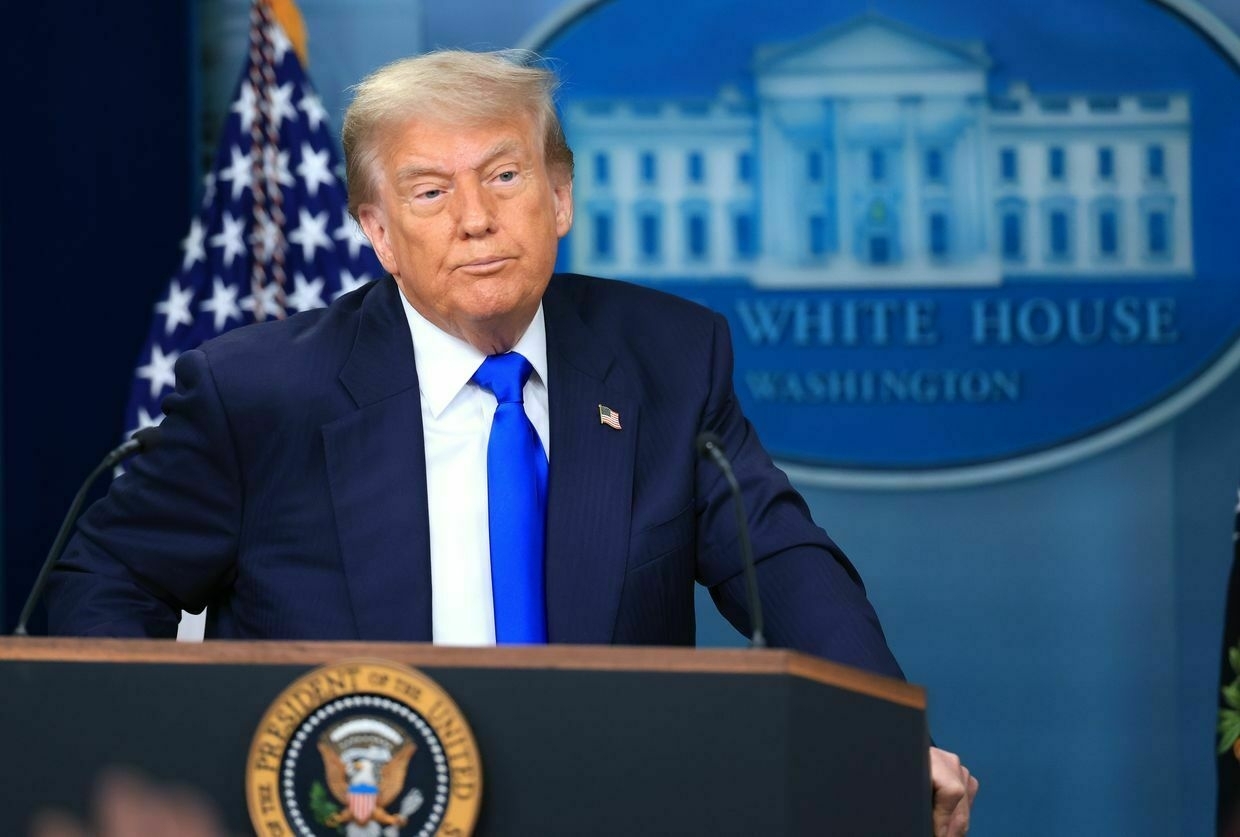
-
Ukrainian bank wins $1.5 billion appeal against Russia over lost Crimea assets
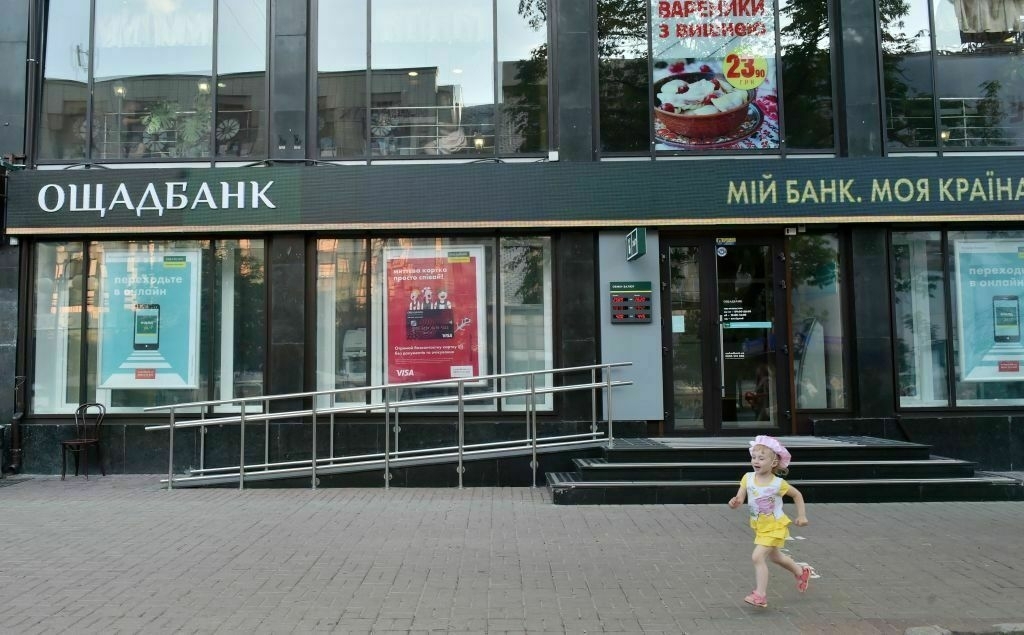
Ukraine’s Oschadbank won an appeal against Russia on July 1 after the Paris appeals court rejected Moscow’s challenge to a 2018 arbitration ruling ordering compensation for losses due to Russia’s annexation of Crimea, the bank announced in a press release on July 3.
The Paris Court of Appeal upheld the November 2018 arbitration tribunal decision requiring Russia to compensate Oschadbank for damages incurred when Moscow annexed the Ukrainian peninsula in 2014.
The ruling orders Russia to pay more than $1.5 billion in damages and an additional 300,000 euros ($330,000) in legal costs to Ukraine’s largest state-owned bank, according to a press release.
“The victory proves that efforts to force the aggressor state to answer legally for damages caused by the occupation of part of Ukraine’s territory have good prospects,” said Rosa Tapanova, a member of Oschadbank’s supervisory board.
Oschadbank Chairman Serhii Naumov said it’s the first Ukrainian bank to win such a case against Russia.
The decision follows Oschadbank’s recent seizure of over 87 million euros ($102 million) in Russian assets in France as part of its campaign to recover war-related losses. The bank has been pursuing Russian assets across multiple jurisdictions to enforce the arbitration award.
“We understand that the Russian Federation will never voluntarily comply with the court’s decision, and we are prepared for a long struggle,” said Arsen Miliutin, deputy chairman of Oschadbank’s management board.
“At the same time, we are confident that we will win, and Russia will pay not only the amount of damages caused, but also interest for all this time."
The Oschadbank victory adds to a growing list of Ukrainian legal wins against Russia. On June 23, Naftogaz CEO Serhii Koretskyi announced that an international arbitration tribunal in Switzerland had ordered Russia’s Gazprom to pay the Ukrainian state energy company $1.37 billion after the Russian firm stopped fulfilling contract obligations in May 2022.
As Trump ‘loses interest’ in Ukraine, Kyiv scrambles to clarify extent of U.S. military aid pauseWhen the U.S. Department of Defense (DOD) halted the transfer of critical air defense missiles and other weapons to Ukraine, Kyiv and its partners were caught off-guard and are now left scrambling for clarity on the scope and length of the Trump administration’s decision. The White House confirmed the halt after a July 1 report by Politico said shipments were paused due to concerns over the size of domestic stockpiles. The decision “was made to put America’s interests first following a DOD rev The Kyiv IndependentAndrea Januta
The Kyiv IndependentAndrea Januta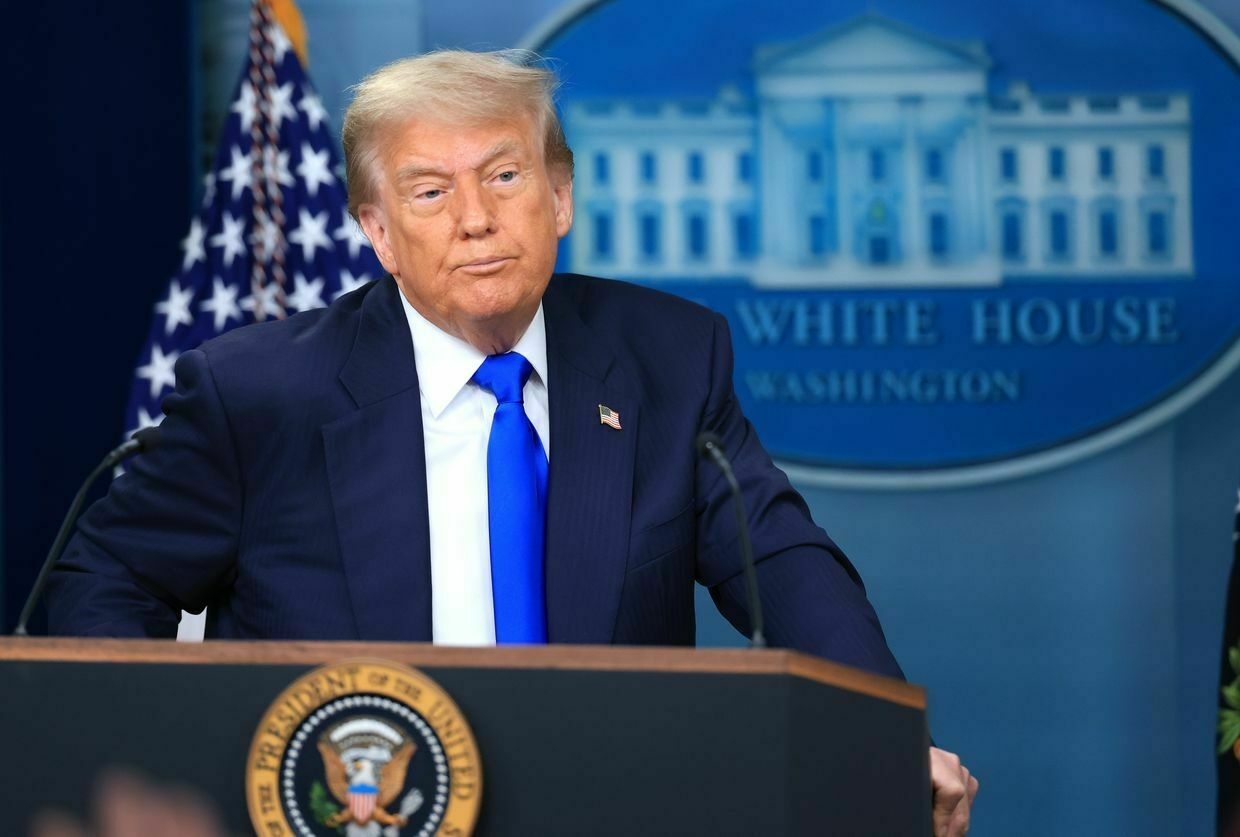
-
Putin tells Trump Russia won't back down from its war aims in Ukraine
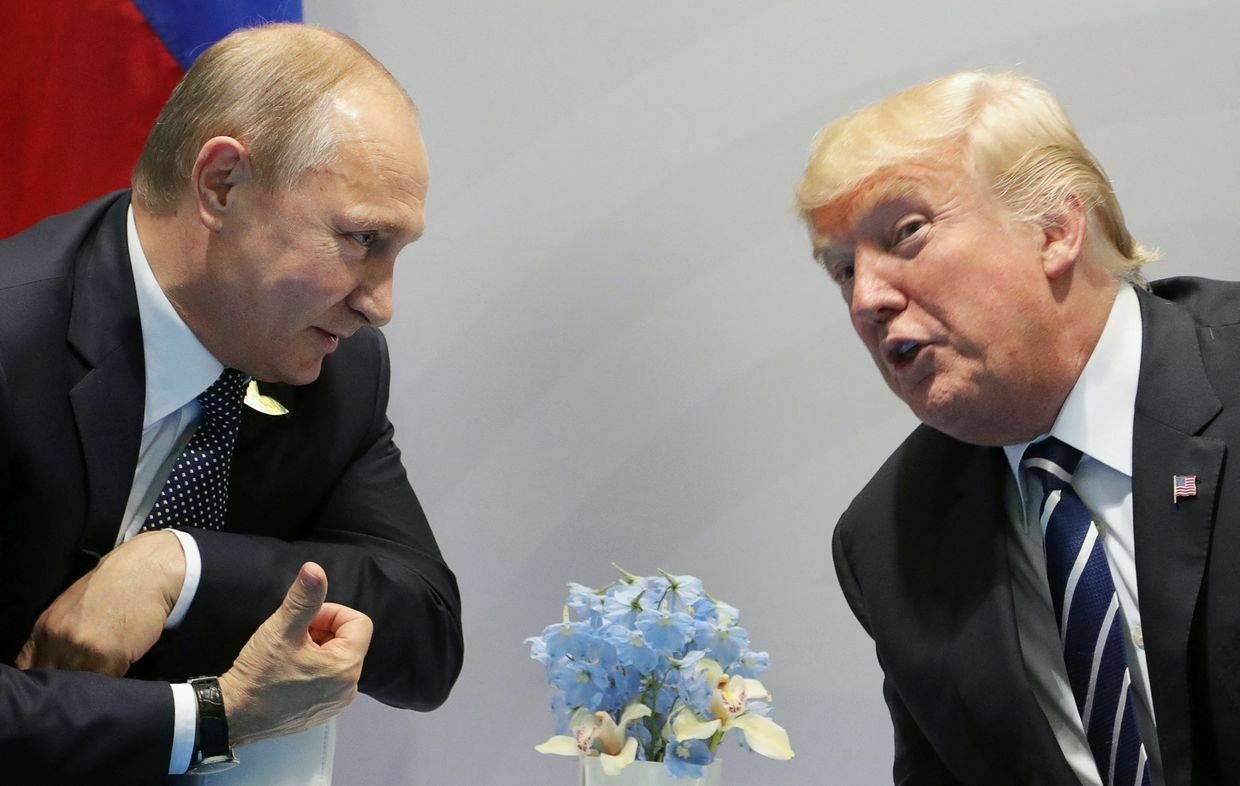
During a phone call with U.S. President Donald Trump on July 3, Russian President Vladimir Putin said “Russia will continue to pursue its goals” in the war against Ukraine, Kremlin aide Yury Ushakov said.
The hour-long conversation between the two presidents focused on Russia’s war in Ukraine and the situation in the Middle East, according to Ushakov.
“Trump once again emphasized the need to end military hostilities as soon as possible. Vladimir Putin noted that Russia continues to seek a political negotiated solution to the conflict,” Ushakov said.
“Our president said that Russia will pursue its goals, specifically addressing the root causes that led to the current situation, and will not back down from these objectives."
Putin’s message came amid a surge of Russian drone and missile attacks across Ukraine that have killed and injured hundreds of civilians in recent weeks.
The strikes have destroyed numerous infrastructure as Russia intensifies its assault despite repeated calls from Kyiv, Washington, and European leaders for an unconditional ceasefire.
The call also came days after the U.S. Defense Department paused shipments of key weapons systems to Ukraine, including Patriot air defense missiles and precision-guided munitions.
Ukraine’s Foreign Ministry has warned that the delay undermines defense efforts and risks emboldening Russia to escalate further.
President Volodymyr Zelensky, speaking from Denmark earlier in the day, said that achieving peace would require direct talks between national leaders.
The president described Trump and Putin as “completely different people” but emphasized that only Putin controls decision-making in Russia.
“In Russia, only Putin makes decisions, which is why we need a meeting at the leadership level if we want to have peace,” Zelensky said.
According to Ushakov, the presidents did not discuss the possibility of a meeting, but “the idea is in the air,” and they agreed to continue communication.
Moscow and Kyiv have held two rounds of face-to-face talks in Istanbul this year, first on May 16 and again on June 2, following more than three years without direct negotiations.
The meetings resulted in significant prisoner exchanges, but no steps toward a ceasefire.
While Trump has expressed frustration with Russia’s continued aggression, his administration has not imposed new sanctions nor taken steps to pressure the Kremlin directly.
As Trump ‘loses interest’ in Ukraine, Kyiv scrambles to clarify extent of U.S. military aid pauseWhen the U.S. Department of Defense (DOD) halted the transfer of critical air defense missiles and other weapons to Ukraine, Kyiv and its partners were caught off-guard and are now left scrambling for clarity on the scope and length of the Trump administration’s decision. The White House confirmed the halt after a July 1 report by Politico said shipments were paused due to concerns over the size of domestic stockpiles. The decision “was made to put America’s interests first following a DOD rev The Kyiv IndependentAndrea Januta
The Kyiv IndependentAndrea Januta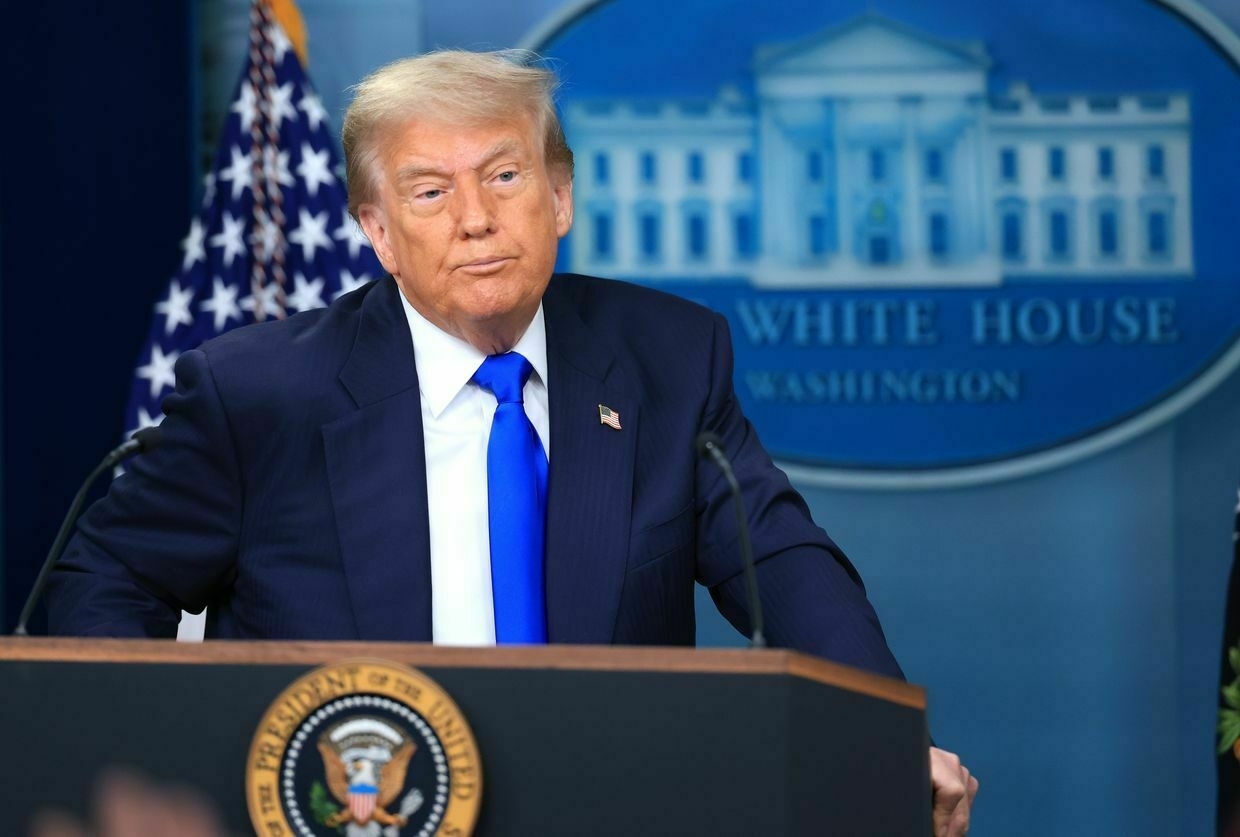
-
DPRK and Russia are deepening cooperation! The danger of a new conflict is growing #shorts
-
As Trump 'loses interest' in Ukraine, Kyiv scrambles to clarify extent of U.S. military aid pause
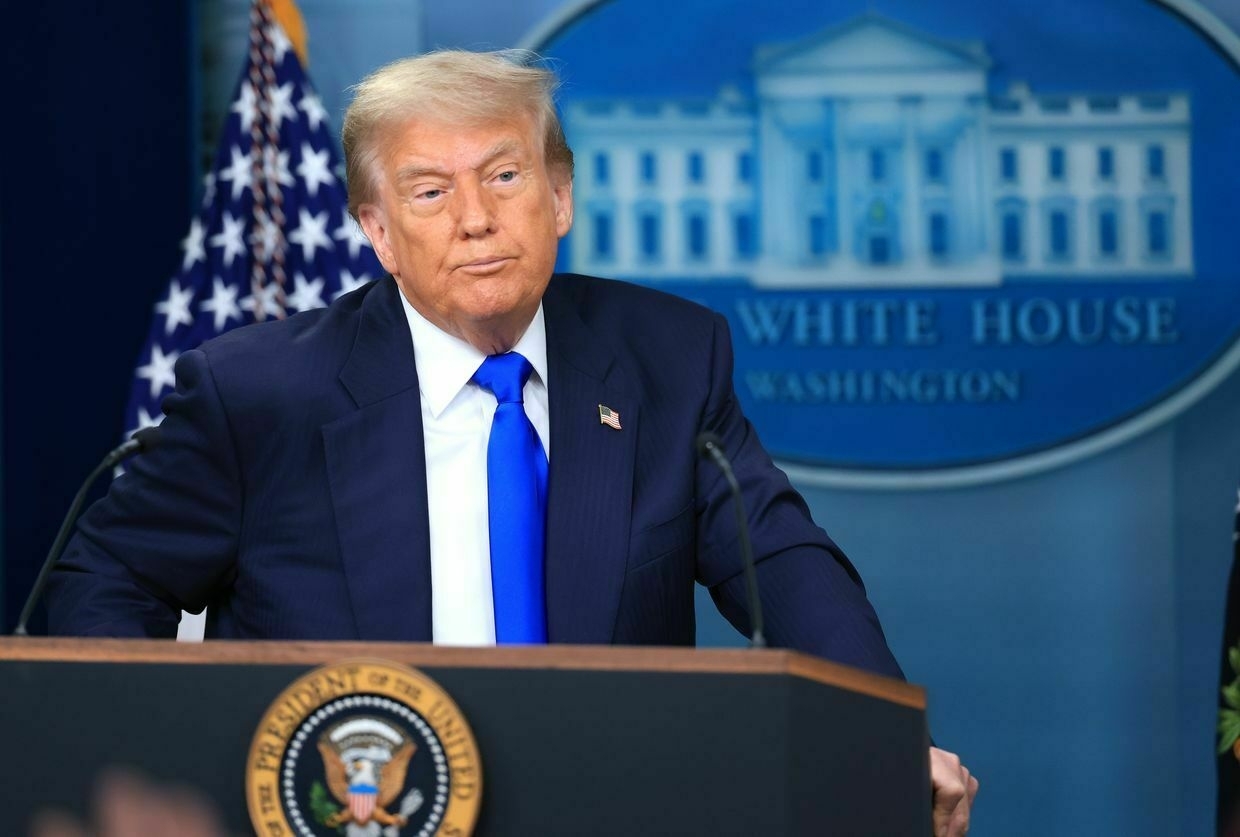
When the U.S. Department of Defense (DOD) halted the transfer of critical air defense missiles and other weapons to Ukraine, Kyiv and its partners were caught off-guard and are now left scrambling for clarity on the scope and length of the Trump administration’s decision.
The White House confirmed the halt after a July 1 report by Politico said shipments were paused due to concerns over the size of domestic stockpiles.
The decision “was made to put America’s interests first following a DOD review of our nation’s military support and assistance to other countries across the globe,” White House Deputy Press Secretary Anna Kelly said in a statement.
The Pentagon referred to the halt as a “capability review."
U.S. State Department spokeswoman Tammy Bruce emphasized that the halt was limited in scope. “This is not — I will reinforce this — this is not a cessation of us assisting Ukraine or of providing weapons,” Bruce said, according to media reports.
“This is one event in one situation, and we’ll discuss what else comes up in the future. But be wary of painting too broad a brush there."
But Ukraine, which was not notified of the pause in advance of media reports, responded with alarm at the prospect of a reduction in weapons and the lack of clarity from its partner on when — if at all — shipments could resume.
“They’ve stopped the flow while they find out what (stockpiles) they really have, but it is not yet clear whether this is a valid reason and whether everything will continue,” a source in Ukraine’s President’s Office told the Kyiv Independent.
Also still unclear, said the source, was whether the U.S. will allow Ukraine to purchase Patriot air defense missiles, which President Volodymyr Zelensky has repeatedly expressed a desire to buy.
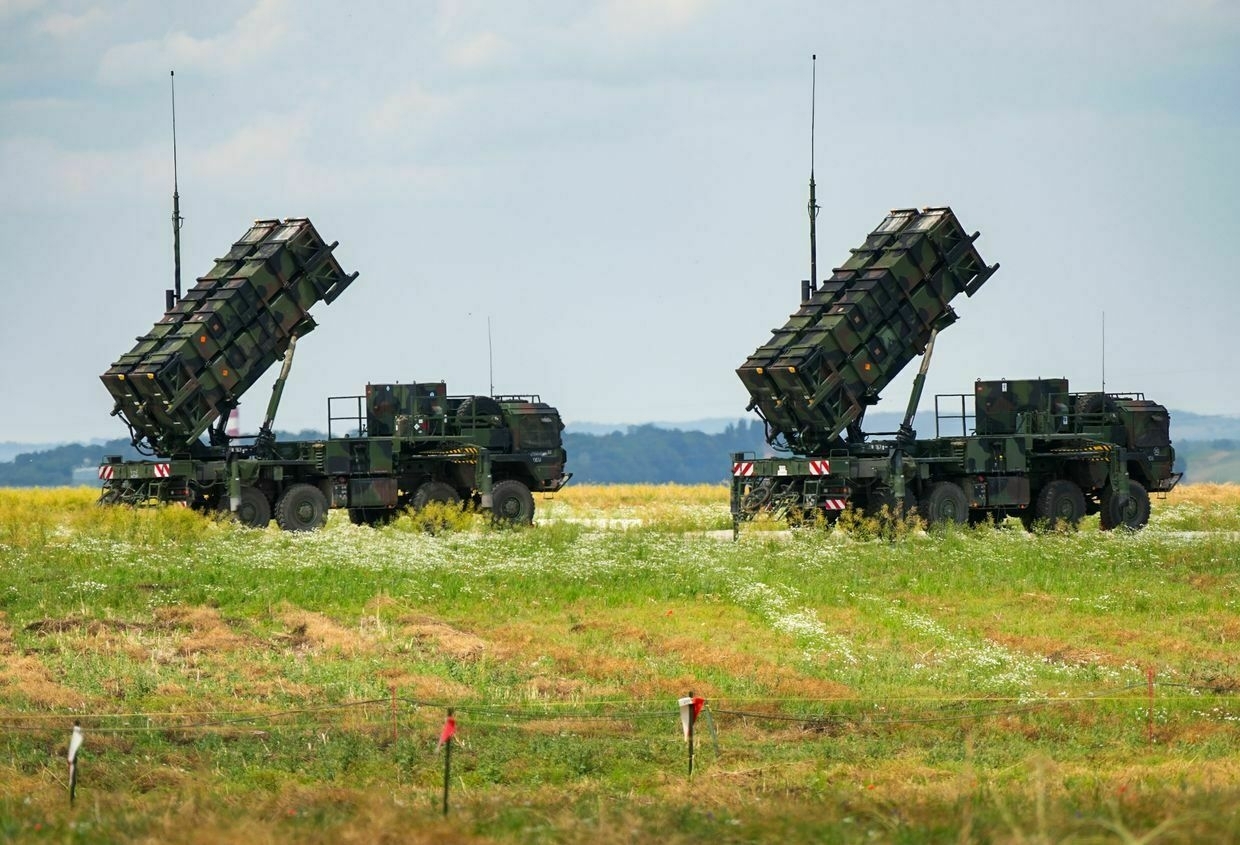
Two Patriot air defense systems in Zamosc, Poland, on July 3, 2023. (Soeren Stache/picture alliance via Getty Images) The Foreign Ministry summoned the acting U.S. Chargé d’Affaires in Ukraine to discuss the matter, and “emphasized that any delay or slowing down in supporting Ukraine’s defense capabilities would only encourage the aggressor to continue war and terror, rather than seek peace,” according to a statement from the ministry.
A shift in U.S. prioritiesThe decision comes as Russia sharply steps up aerial attacks, launching a record-breaking 5,337 drones against Ukraine in the month of June and unleashing some of the war’s deadliest strikes on civilians. Even before the announcement, Kyiv’s stockpiles of critical air defense interceptor missiles were running low.
“Cutting off delivery of missiles for Patriot anti-air systems will mean a weaker air defense system over the country, and as a result, destruction of civilian infrastructure and major casualties among civilians,” a deputy commander in Ukraine’s air defense told the Kyiv Independent.
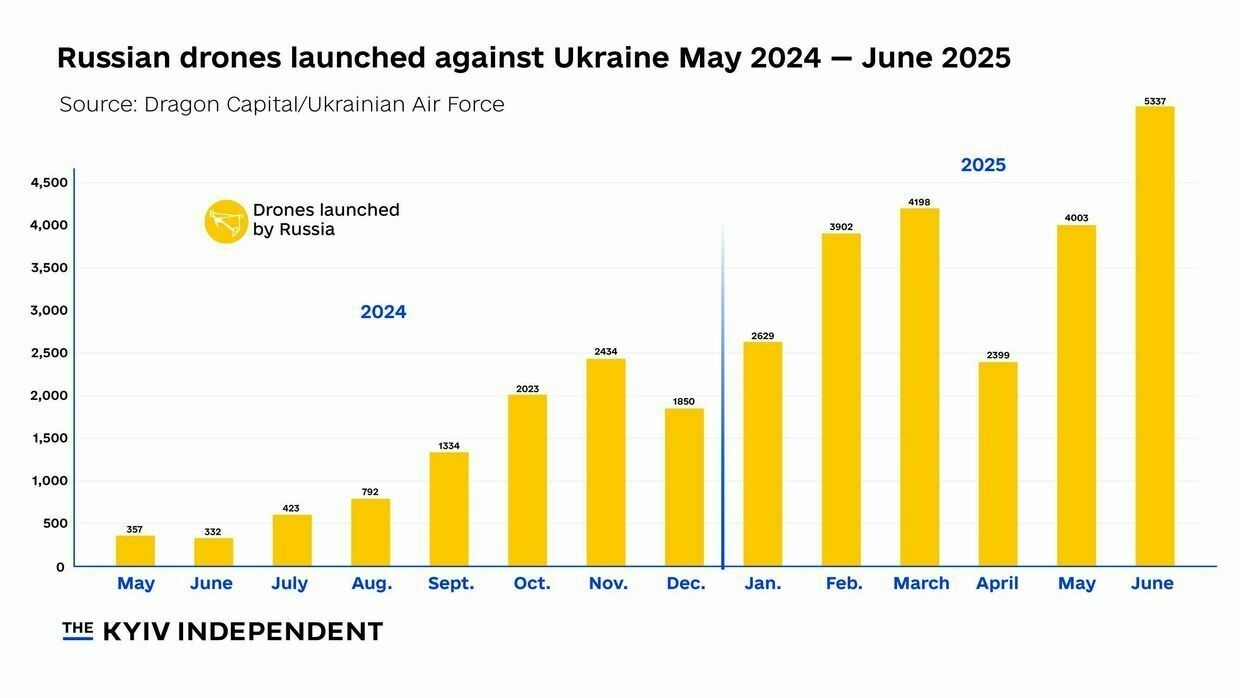
Russian drones launched against Ukraine by month. (Nizar al-Rifai/The Kyiv Independent) The move sparked fears of a repeat of events in early March, when the U.S. cut off all military aid to Ukraine after a contentious meeting in the White House between Zelensky and Trump. The freeze was lifted on March 11 following bilateral talks in Saudi Arabia.
Trump ‘losing interest’ in UkraineSince the Trump administration took power in January, the U.S. has not agreed to send any new additional weapons packages to Ukraine. However, shipments that were previously greenlit under the Biden administration are still in the queue.
“[Trump] has lost interest in the Ukraine war as there are no quick political gains for him in being involved in a conflict he can’t easily control.”
While March's pause was a result of tensions between Ukraine and the U.S., the latest pause appears to be a result of a change in U.S. priorities as tensions rise in the Middle East and Trump administration officials shift focus away from Russia and Ukraine.
"The president knows he can’t impose a ceasefire on either Russia or Ukraine," Peter Layton, a military expert at the Royal United Services Institute, told the Kyiv Independent.
"Given this, he has lost interest in the Ukraine war as there are no quick political gains for him in being involved in a conflict he can’t easily control. The president is now moving on to other agendas."
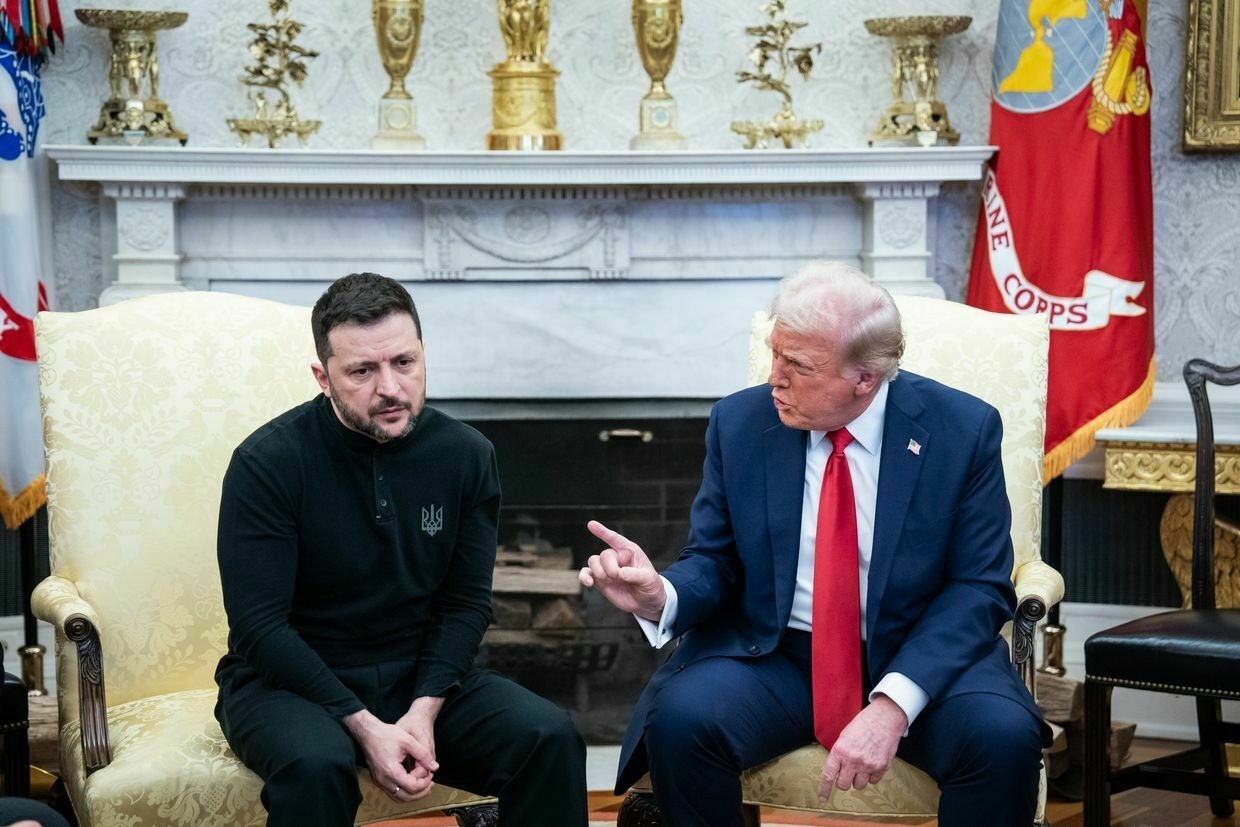
President Donald Trump and President Volodymyr Zelensky in the Oval Office at the White House on Feb. 28, 2025. (Jabin Botsford/The Washington Post via Getty Images) "I think the resources have instead been flowing to the Middle East and principally to Israel to help in its war with Iran," Layton added.
"Some resources may have bolstered U.S. air and missile defenses at American bases in the Gulf but I think most has been sent to Israel. The U.S. administration seems to have had some warning of Israel’s attack on Iran and moved resources into the Middle East in anticipation."
Neil Quillian, a Middle East expert at Chatham House, agreed that the escalation in the Middle East was a contributing factor to the halt in supplies, as well as waning interest in Ukraine among Trump's advisors.
"The U.S. is resupplying Israel at pace. Another factor will be Washington's limited capacity to manage multiple conflicts at once, given that President Trump depends on so few advisers," Quillian said.
The future of U.S. military aid to Ukraine
The largest question looming for Kyiv is when — and if — deliveries will continue. So far, the Trump administration hasn't clarified what to expect."While Trump does not really seem to care what happens to Ukraine, he does crave approval and praise," Jenny Mathers, a lecturer in international politics at the U.K.'s Aberystwyth University, told the Kyiv Independent.
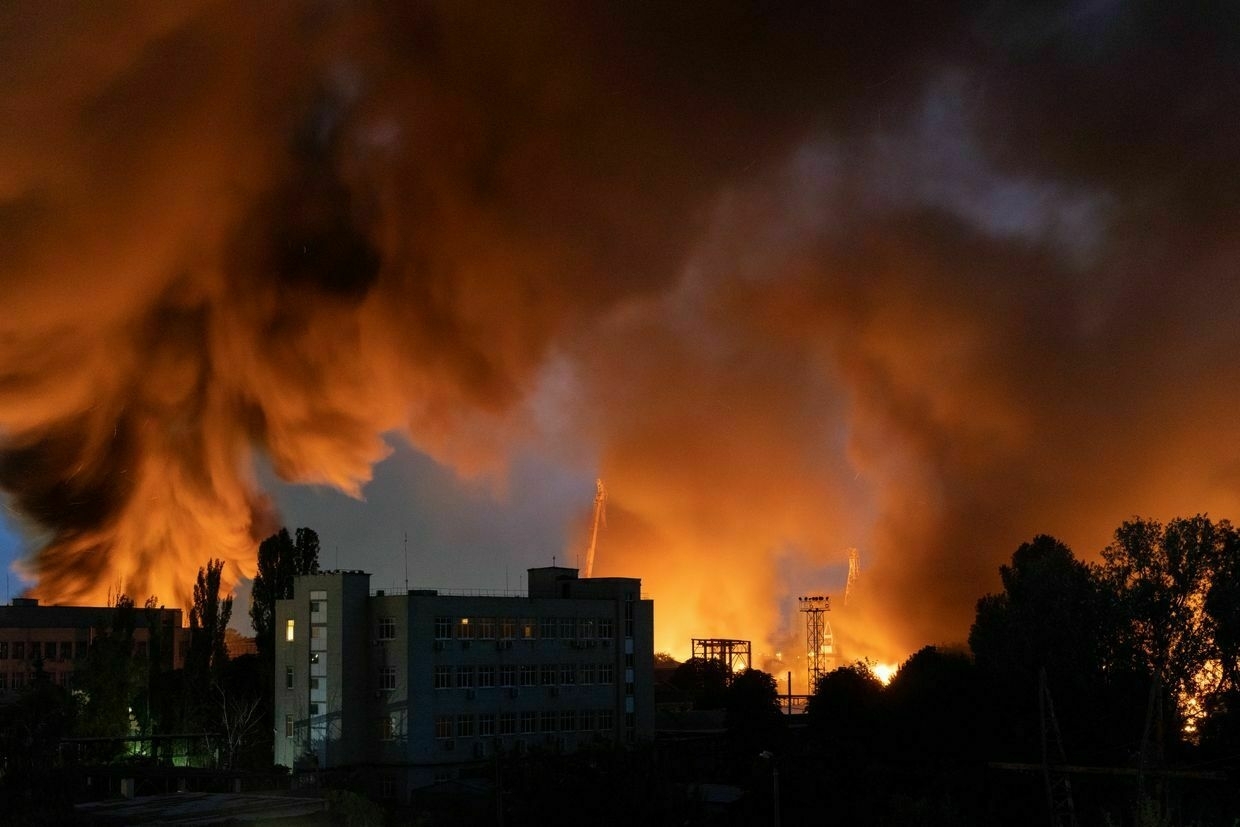
Fire and smoke rise after Russian drone strikes in Kyiv, Ukraine, on June 10, 2025. (Oles Kromplias / Global Images Ukraine via Getty Images) "If U.S. military aid is suspended or withdrawn and the spotlight turns to other countries that step up, he might want to make a dramatic gesture to again become the centre of attention. But ultimately this kind of support is not something that Ukraine can count on."
Layton said he didn't expect the aid to restart "unless there is some dramatic event that leads to the American public turning against the president over Ukraine."
BREAKING: Deputy commander of Russian Navy killed in Ukrainian strike in Kursk, Russian official confirmsMajor General Mikhail Gudkov also led a brigade involved in combat operations against Ukraine. His death reportedly occurred during a Ukrainian attack on a Russian command post. The Kyiv IndependentAnna Fratsyvir
The Kyiv IndependentAnna Fratsyvir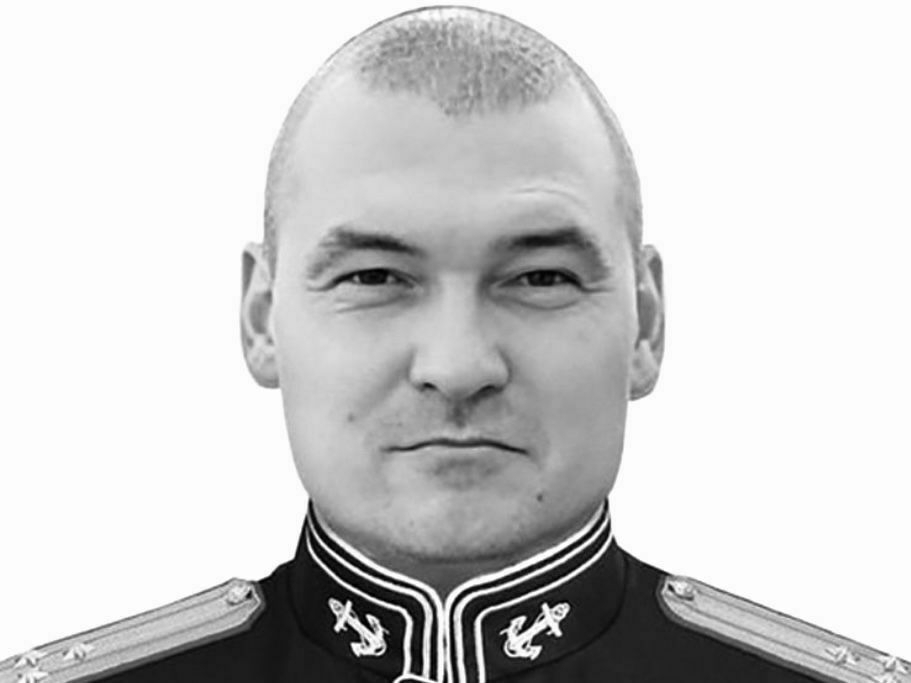
-
Ukraine, US company to co-produce hundreds of thousands of drones in 2025, Zelensky announces
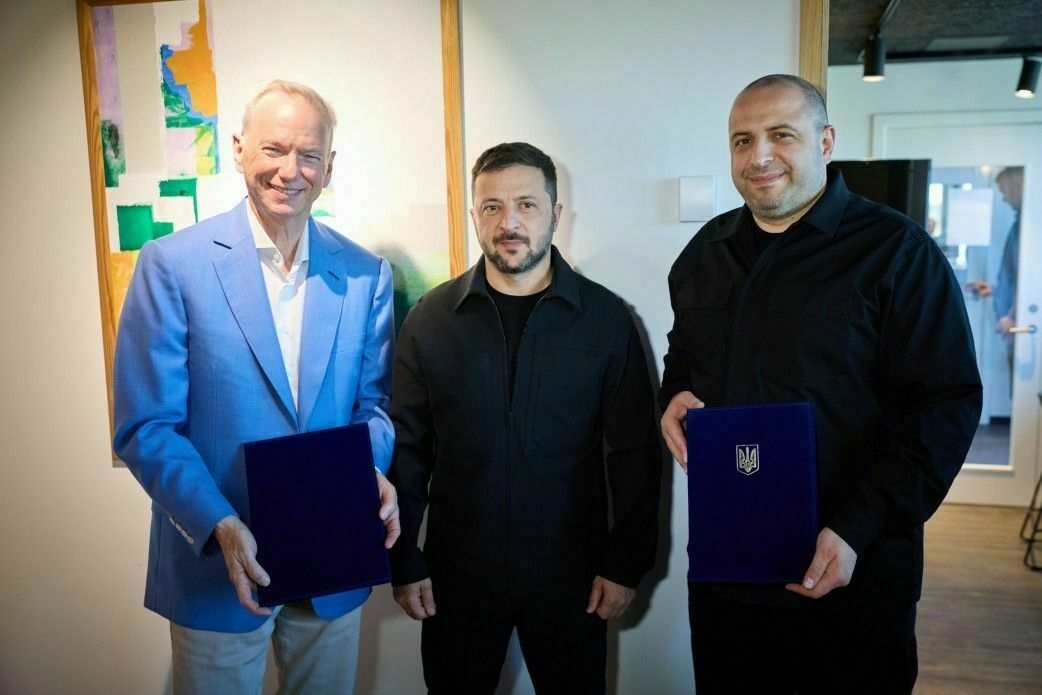
Ukraine signed a major deal with U.S. company Swift Beat to co-produce hundreds of thousands of drones this year, President Volodymyr Zelensky announced on July 3 during his visit to Denmark.
The long-term strategic partnership agreement was signed by Ukraine’s Defense Minister Rustem Umerov and Eric Schmidt, the CEO of Swift Beat, in Denmark on the same day.
Under the deal, the company will produce various kinds of unmanned aerial vehicles for Ukraine, including those designed to intercept Russian drones and missiles, reconnaissance, attack, and other drones, Zelensky said in a statement published on the website of the President’s Office.
“The key priority is interceptor drones that have already proven effective in Ukraine,” Zelensky said. “We’ve tested models from several companies, and now we’re signing serious contracts."
Swift Beat will increase its production capacity, aiming to produce hundreds of thousands of drones for Ukraine this year, with plans to scale up production in 2026, according to Zelensky.
“Modern drones will be supplied to Ukraine as a priority, on special terms and at cost,” Zelensky said.
The announcement comes just a day after the U.S. Defense Department (DOD) has halted shipments of some air defense missiles and other weapons previously promised to Kyiv. Ukraine has been trying to negotiate buying U.S. weapons for months after U.S. President Donald Trump, who has opposed military aid to Kyiv, took office in January.
Swift Beat has a significant presence in Ukraine, according to Zelensky's office. It specializes in autonomous AI-powered drones and cooperates with Ukrainian engineers and the military, conducting drone testing on Ukrainian territory, the statement reads.
Zelensky arrived in Denmark on July 3 to mark the country's assumption of the rotating presidency of the Council of the European Union.
Zelensky also said that during his visit, he plans to raise the issue of political blockages hindering Ukraine's path to joining the European Union.
"We're ready to open three accession clusters and want to start with one now, in the very near future. But political blockages remain, purely political," he said.
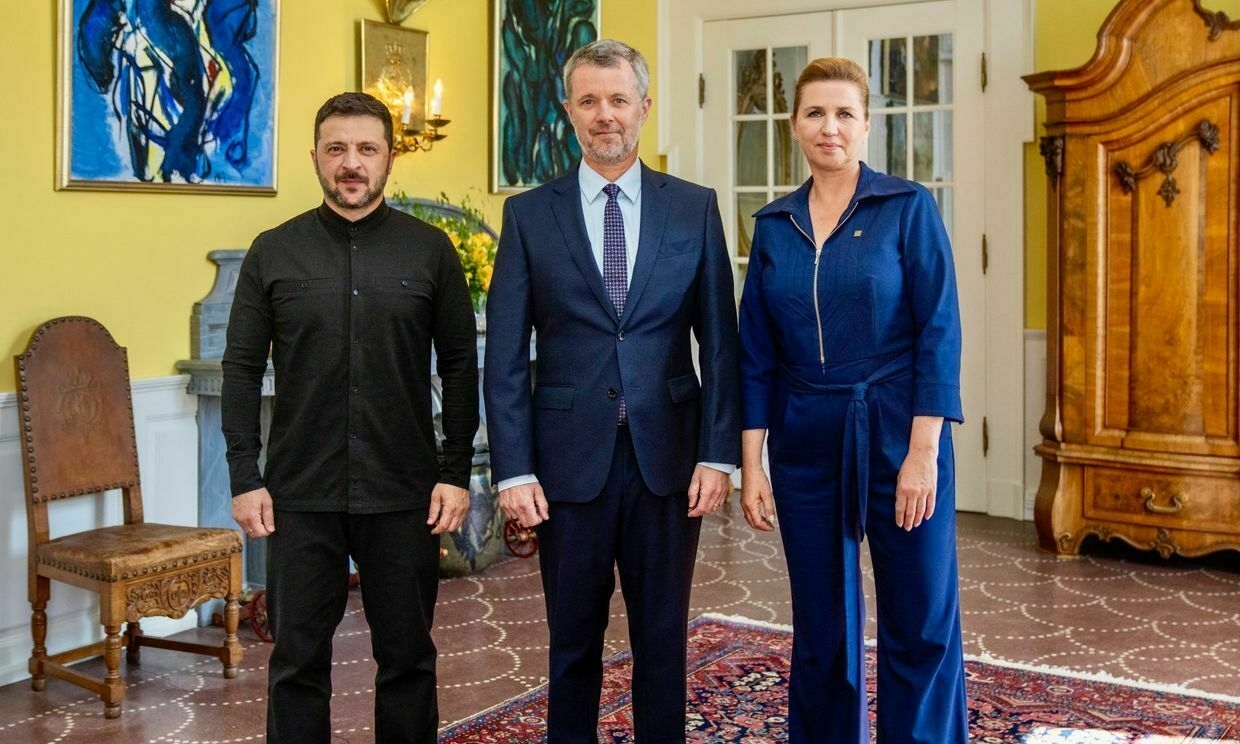
Denmark's King Frederik (C), President Volodymyr Zelensky (L), and Denmark's Prime Minister Mette Frederiksen (R) in Aarhus, Denmark, on July 3, 2025. (Ida Marie Odgaard / Ritzau Scanpix / AFP) While EU member states agreed to take into account the European Commission's assessment that Ukraine is ready to open the first, Fundamentals cluster, the process remains stalled due to Hungary's refusal to grant unanimous support.
Ukraine applied for EU membership in 2022 and was granted candidate status shortly thereafter, but full negotiations require the approval of all 27 EU member states.
Denmark has been a key backer of Ukraine since the start of Russia's full-scale invasion in 2022. In February 2024, Copenhagen signed a 10-year bilateral security agreement with Kyiv, pledging long-term defense cooperation until Ukraine secures NATO membership.
Zelensky said he expects Denmark to expand its financial support for Ukraine's drone and missile production initiatives.
"What we've just signed requires significant funding. I'm counting on our relationship with Denmark," the president said.
The Ukrainian president will also participate in official events commemorating Denmark's presidency of the Council. According to Danish broadcaster DR, the events will be attended by Denmark's royal family, government officials, and EU leaders.
‘One of Russia’s most critical targets’ — Ukraine confirms strike on missile battery plant in LipetskThe Energia plant in Yelets produces parts for ballistic and cruise missiles, as well as batteries for drones and glide bombs. The factory was previously targeted multiple times this past May.The Kyiv IndependentVolodymyr Ivanyshyn
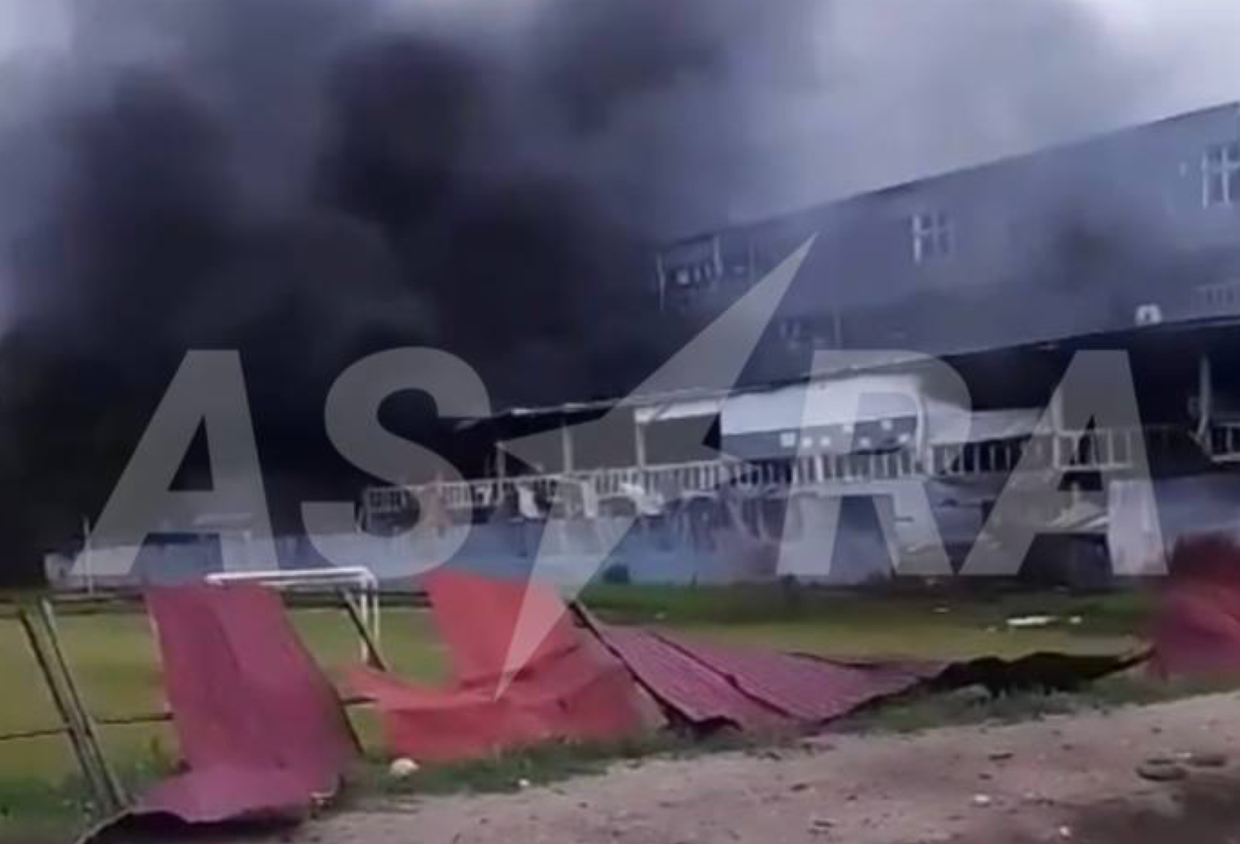
-
Russia tribunal advances, and North Korea trains soldiers for the Kremlin
-
Explosion reportedly kills former Russian proxy mayor in occupied Luhansk
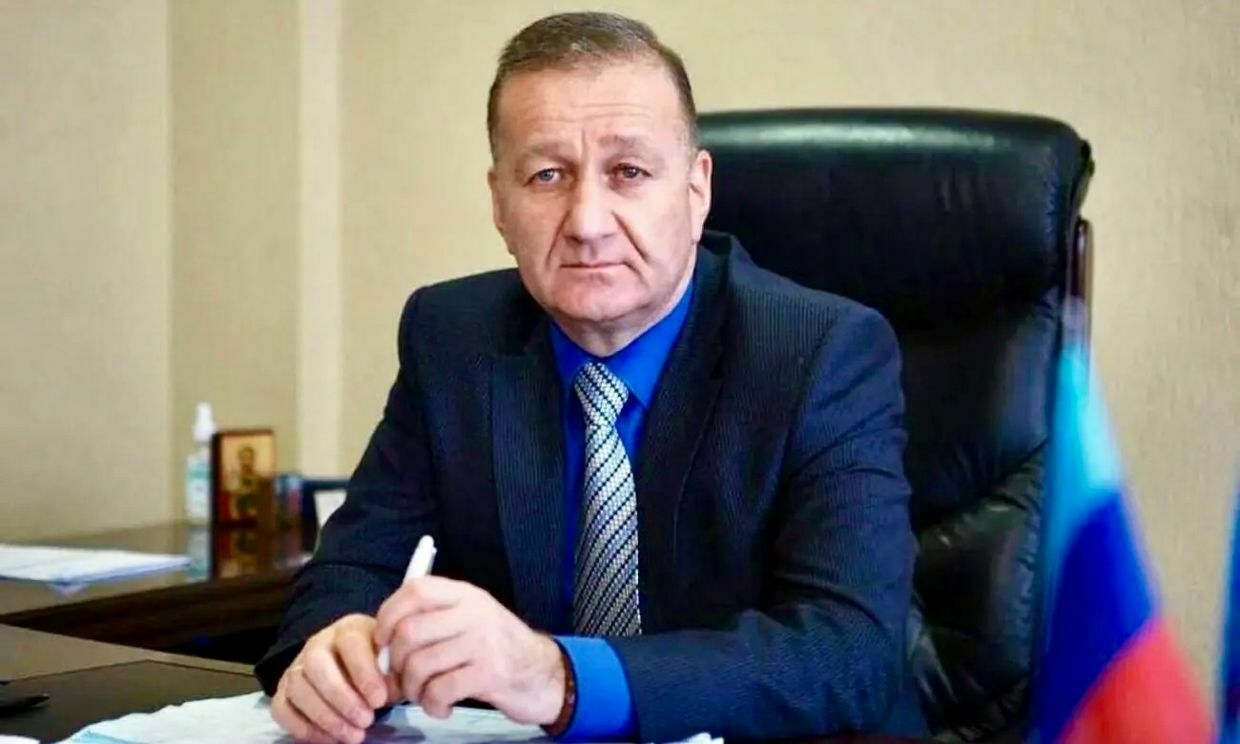
A midday explosion in the center of Russian-occupied Luhansk killed Manolis Pilavov, the city’s former Russian-installed mayor, Russian state news agency TASS reported on July 3.
Pilavov headed the occupation administration of Luhansk city from December 2014 until stepping down in November 2023. He had been wanted in Ukraine since 2015 on charges including attempting to violently overthrow the constitutional order and violating Ukraine’s territorial integrity.
The blast occurred around noon local time, according to TASS. Three people were reportedly injured, one of them in serious condition.
Ukraine has not commented on Pilavov’s reported death. Explosions targeting collaborators and occupation officials have become more frequent in recent months.
Pilavov, born in 1964, held several posts in the local Luhansk administration before Russia occupied parts of Ukraine’s eastern Luhansk Oblast in 2014.
He served as a city council member representing the now-banned pro-Russian Party of Regions and later actively supported the local Russian occupation administration.
Ukrainian authorities say Pilavov participated in separatist propaganda events and encouraged support for Moscow’s proxy occupation structures shortly after Russian-backed militants took control of parts of Luhansk Oblast in 2014.
Luhansk remains under Russian occupation, with its city center and government institutions controlled by Kremlin-installed proxies.
BREAKING: Deputy commander of Russian Navy killed in Ukrainian strike in Kursk, Russian official confirmsMajor General Mikhail Gudkov also led a brigade involved in combat operations against Ukraine. His death reportedly occurred during a Ukrainian attack on a Russian command post. The Kyiv IndependentAnna Fratsyvir
The Kyiv IndependentAnna Fratsyvir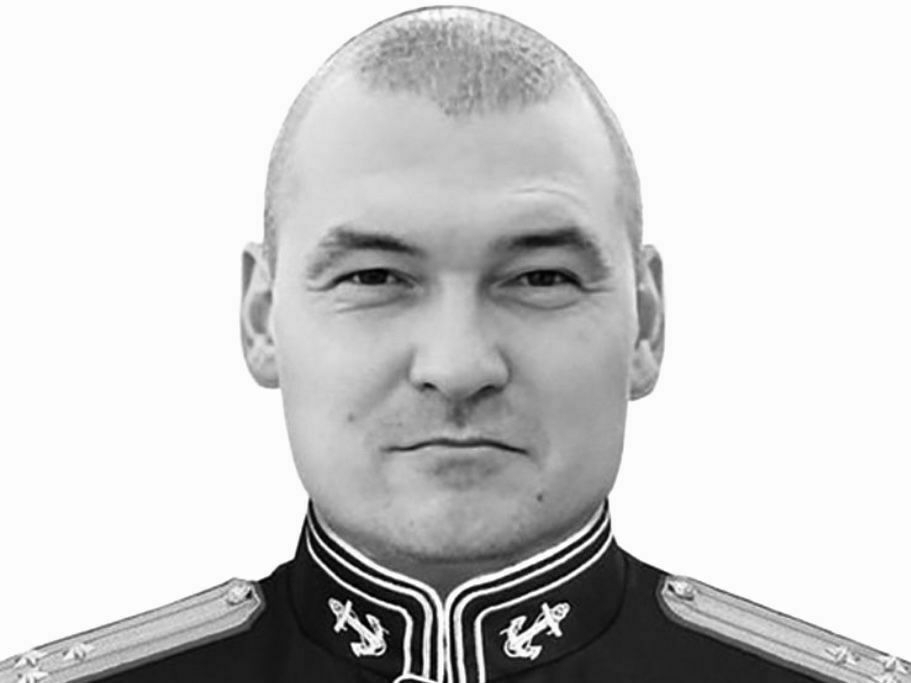
-
Ukrainian Air Force officer acting as 'FSB mole' arrested, SBU says

Ukraine’s Security Service (SBU) detained a Ukrainian Air Force major suspected of spying for Russian Federal Security Service (FSB), the agency reported on July 3.
The alleged spy, arrested during a special operation in Lviv Oblast, was reportedly recruited through his ex-wife, a former military officer now cooperating with Russian forces in occupied Melitopol.
According to the SBU, the officer was gathering coordinates of operational airfields, logistics hubs, and maintenance centers used by Ukrainian combat aircraft. If successful, Russia intended to launch missile and drone strikes on those locations.
The SBU said the operation was coordinated with Ukraine’s Commander-in-Chief and that the agent was supervised by Aleksandr Belodedov, an officer in the FSB’s Alpha special operations unit.
Authorities said they intercepted the agent before any damage was done, documenting his communication with Russian intelligence and securing military sites at risk.
The suspect has been charged with high treason committed during wartime by a group of individuals under Ukraine’s Criminal Code. He remains in custody and faces life imprisonment with asset seizure.
His ex-wife was also charged in absentia for treason during wartime.
‘Major casualties among civilians’ — US freeze on air defense missiles is terrible news for UkraineThe halting of deliveries of air defense missiles from the U.S. will lead to“major casualties among civilians,” a deputy commander in Ukraine’s air defense told the Kyiv Independent. Politico reported on July 1 that the U.S. Defense Department (DOD) had halted shipments of some weapons previouslyThe Kyiv IndependentKollen Post
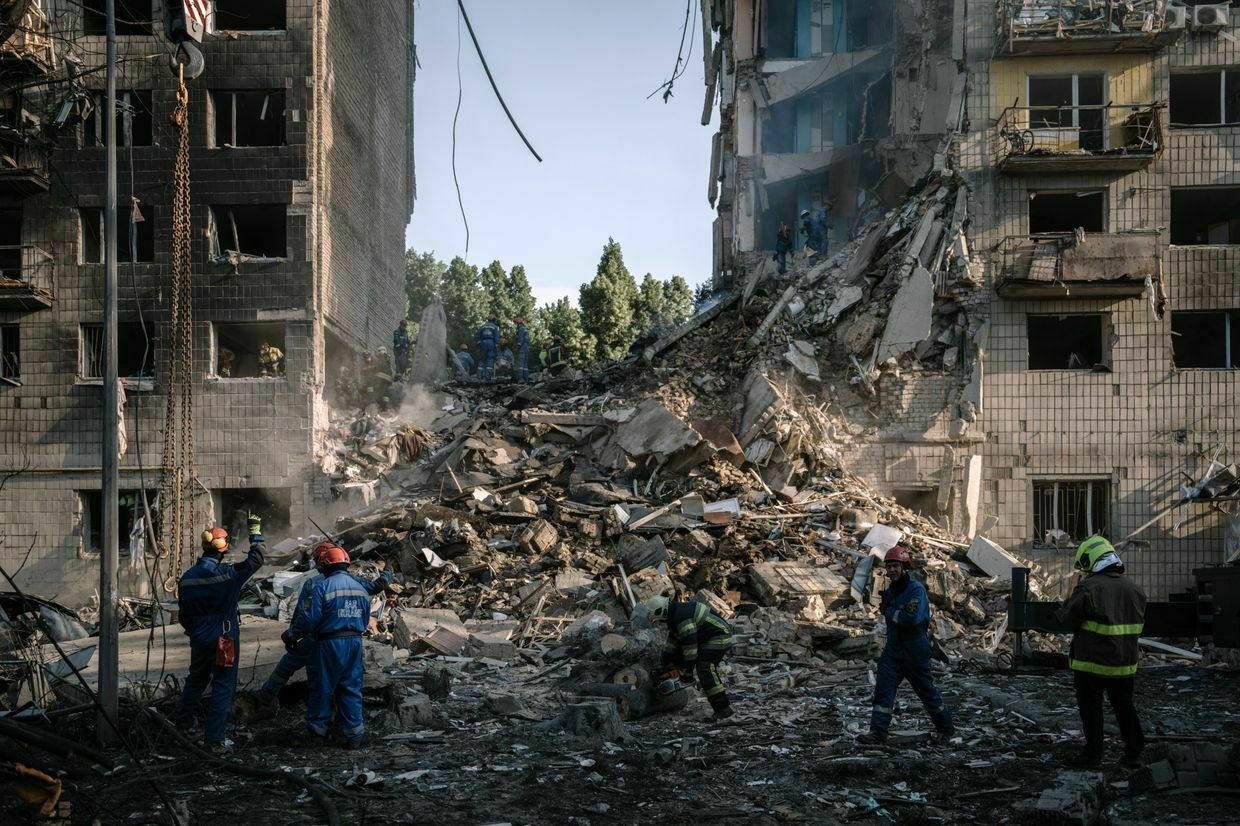
-
'A powerful secondary explosion' — Ukrainian drones destroy Russian ammunition depot in Donetsk Oblast, SBU says
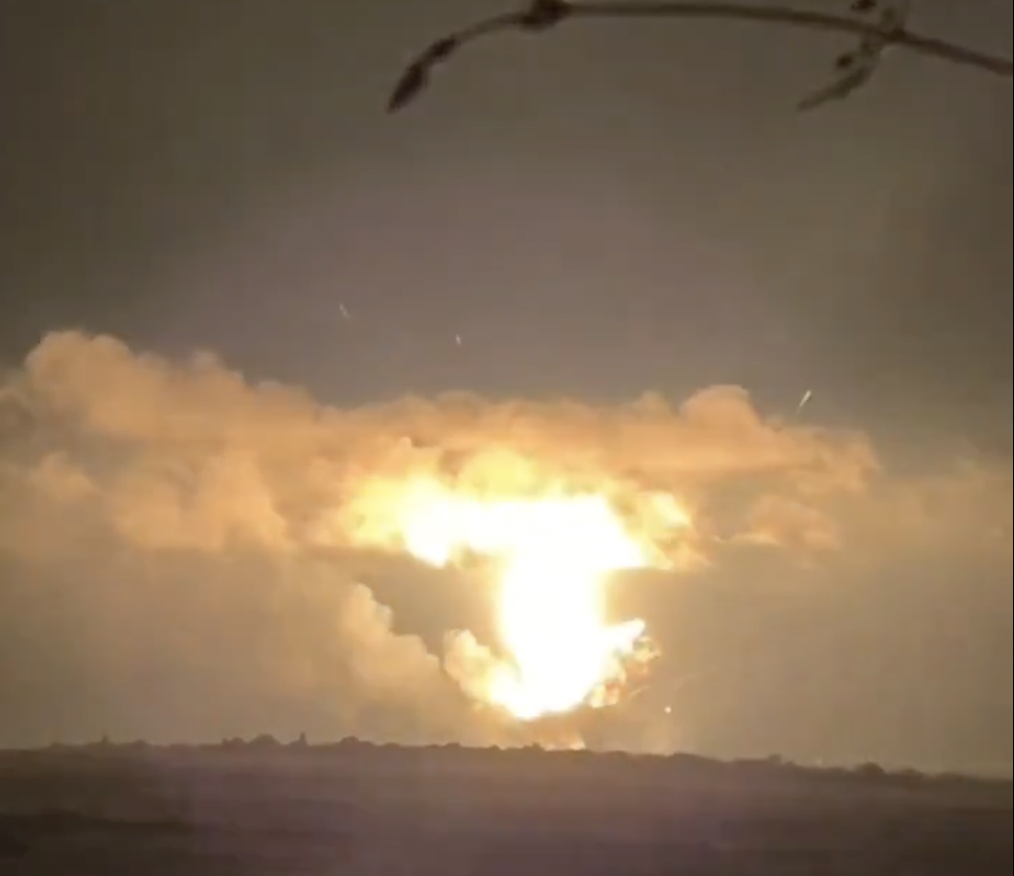
Ukrainian drones struck a Russian ammunition depot in occupied Donetsk Oblast overnight on July 3, setting off a series of huge explosions, Ukraine’s State Security Service said on July 3.
“Starting at 10 p.m., explosions rang out at the depots, followed by a powerful secondary detonation of ammunition and a fire,” the SBU said in a post on social media.
According to the SBU, the ammunition depot is located in the occupied Ukrainian city of Khartsyzsk, near Donetsk, which is “of important strategic importance, as it is used by the Russians as a rear base."
“The enemy has placed command posts, logistics centers, and ammunition depots there. All of them are legitimate military targets,” the statement added.
Unconfirmed videos posted to social media show a fire already burning followed by a large explosion and shockwave.
Meanwhile in Russian-occupied Khartsyzsk.
— Illia Ponomarenko 🇺🇦 (@IAPonomarenko) July 2, 2025
- 1 major Russian munitions depot. pic.twitter.com/uAhnqQONYwElsewhere on July 3, Ukraine confirmed strikes on the Energia factory in Russia's Lipetsk Oblast overnight, a facility that produces components for missiles and drones, including batteries for the Iskander missile system and cruise missiles.
Andrii Kovalenko, head of the Counter-Disinformation Center at Ukraine's National Security and Defense Council, confirmed the strike, calling Energia "one of the most critical targets for Russia."
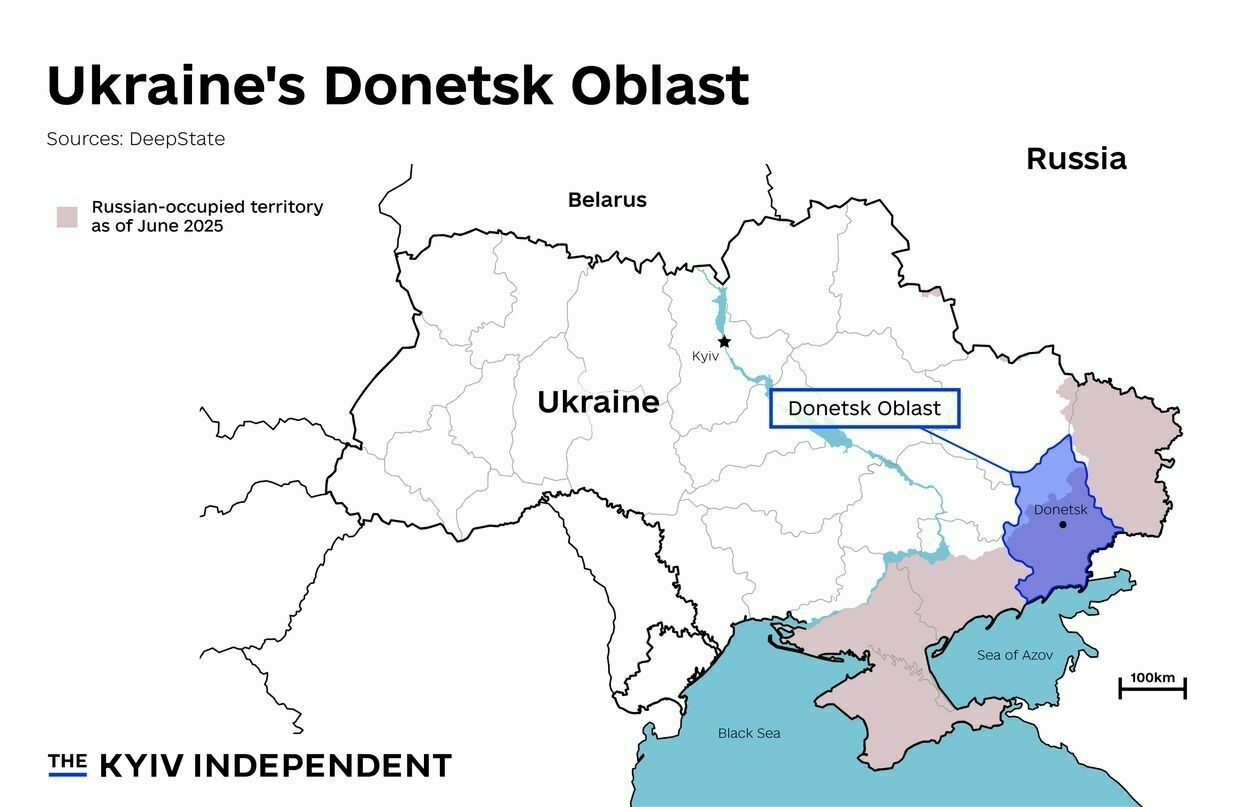
Ukraine's Donetsk Oblast (Nizar al-Rifai/The Kyiv Independent) According to Kovalenko, the facility manufactures batteries for missile guidance and glider modules, including for the Iskander system and cruise missiles.
Ukraine's military regularly strikes military targets in Russian-occupied territories and deep within Russia in an attempt to diminish Moscow's fighting power as it continues its war against Ukraine.
On the evening of June 30, Ukraine similarly struck a command post of the 8th Combined Arms Army of the Russian Armed Forces in the Russian-occupied part of Donetsk Oblast.
Russia has for months focused its offensive efforts on the embattled town of Pokrovsk in Donetsk Oblast and has recently been escalating attempts to break through to neighboring Dnipropetrovsk Oblast, a region that has not yet seen combat.
BREAKING: Deputy commander of Russian Navy killed in Ukrainian strike in Kursk, Russian official confirmsMajor General Mikhail Gudkov also led a brigade involved in combat operations against Ukraine. His death reportedly occurred during a Ukrainian attack on a Russian command post. The Kyiv IndependentAnna Fratsyvir
The Kyiv IndependentAnna Fratsyvir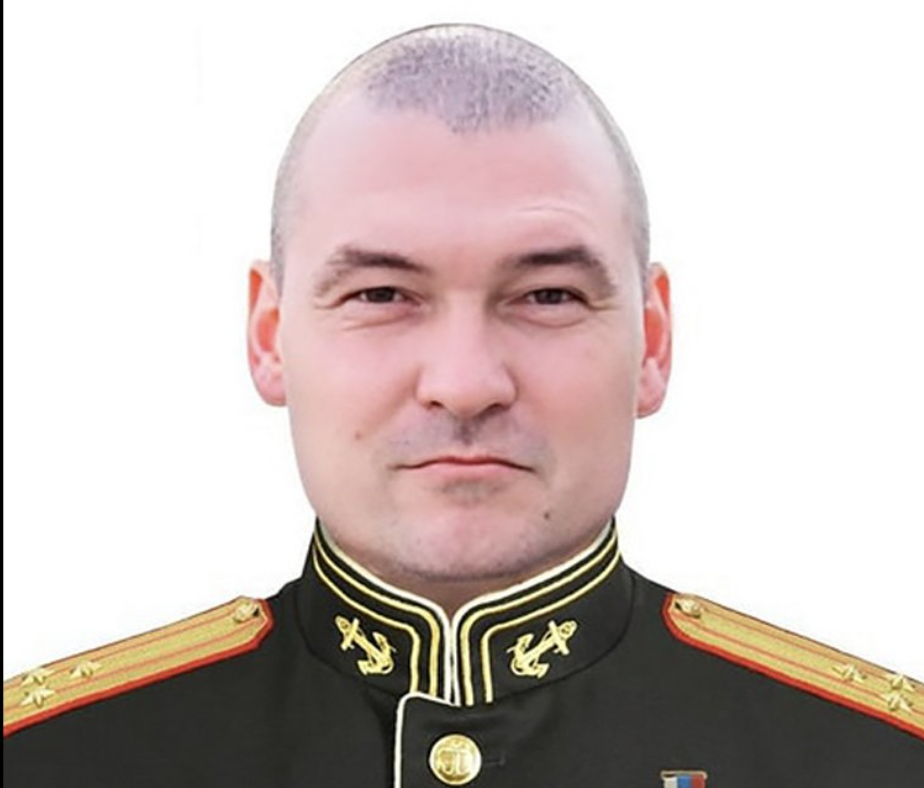
-
BREAKING: Deputy commander of Russian Navy killed in Ukrainian strike in Kursk, Russian official confirms
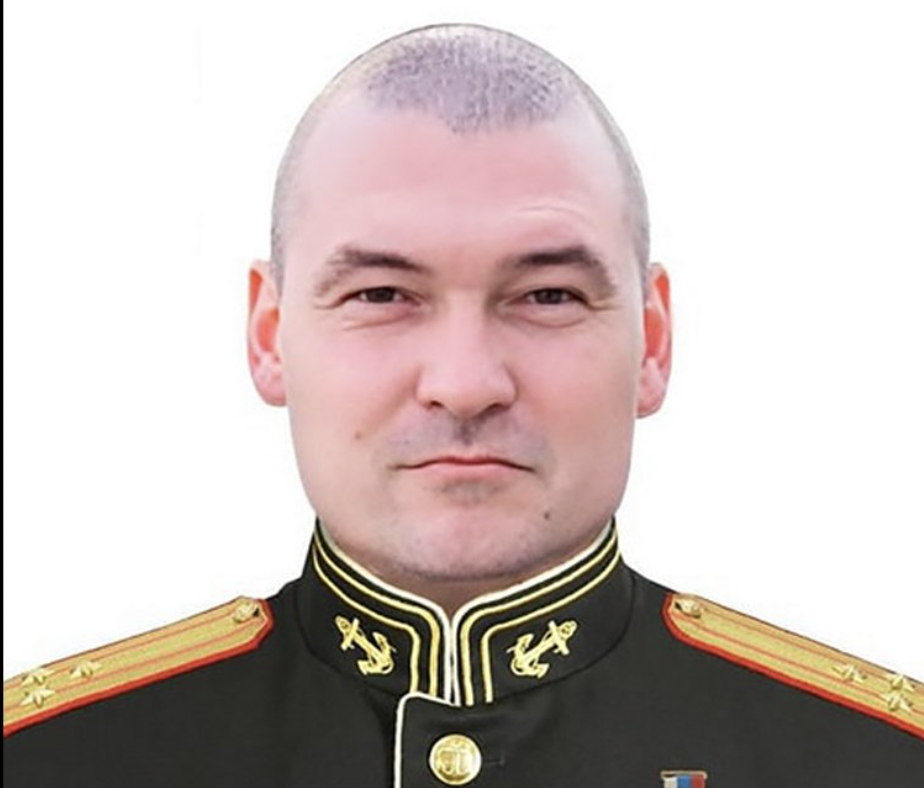
Editor’s note: This is a developing story and is being updated.
A high-ranking Russian naval officer Major General Mikhail Gudkov has been killed in a Ukrainian strike in Russia’s Kursk region, Oleg Kozhemyako, governor of Russia’s Primorsky Krai confirmed on July 3.
Gudkov, the deputy commander of the Russian Navy, was killed in the border district of Korenevo, according to Kozhemyako.
Gudkov also led a brigade involved in combat operations against Ukraine. His death reportedly occurred during a Ukrainian attack on a Russian command post.
Ukraine has not officially commented on the reports.
Arrests, raids, beaten and bloodied suspects — how Russia-Azerbaijan relations have unravelledDeaths in custody, media offices raided, and beaten and bloodied suspects paraded in court — relations between Russia and Azerbaijan, once considered close, have sharply deteriorated in recent days amid a series of high-profile incidents. The latest tensions erupted over the weekend when Russian law enforcement officers detained over 50 AzerbaijaniThe Kyiv IndependentTim Zadorozhnyy
